The official publication of the Massachusetts State Automobile Dealers Association, Inc



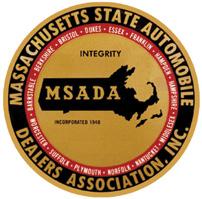







Privacy #1



Guardian

Workforce
Create

Safety Stay


Schedule
St A ff Directory
Robert O’Koniewski, Esq. executive Vice President rokoniewski@msada.org
Jean Fabrizio wwwDirector of Administration jfabrizio@msada.org
Auto De A ler MAg A zine
Robert O’Koniewski, Esq. executive editor MSADA o ne McKinley Square Sixth f loor Boston, MA 02109
Subscriptions provided annually to Massachusetts member dealers. All address changes should be submitted to MSADA by e-mail: jfabrizio@msada.org
Directory
2 ethos group, 41 gW Marketing Services, 29 Merchant Advocate, 25 nancy Phillips, 23 reynolds & reynolds, 26 Sprague energy, 33 Withum, 45
rAteS inquire for multiple-insertion discounts or full Media Kit. e-mail jfabrizio@msada.org
Manufacturers Appealing to the Dept. of Justice to undermine State franchise laws
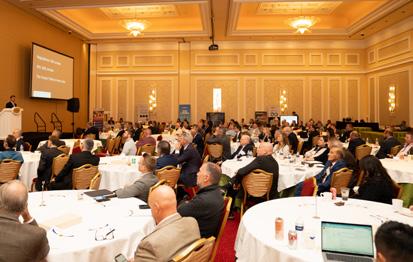
compliance corner – is the Verbal Authorization you obtained Effective?
oPs: My Dealership Has Data everywhere…How Do i Control It?
oPs: the Salesperson’s Playbook – four Behaviors that Drive
UPdAte: nADA President Addresses MSADA Annual Meeting


By Jeb Balise, MSADA President
I want to thank all our dealers who took the time out of your busy schedules to attend this year’s MSADA Annual Meeting on October 10 at the Encore Hotel and Casino in Everett. And for those who brought along a GM or another key manager, thank you doubly for that commitment.
From the feedback I have heard, you enjoyed a thought-provoking and engaging program with your fellow dealers with the strong support of our associate members as well.
We have had quite a few political successes here and in D.C. this year, but there are always challenges to our industry on the road ahead – tariffs, manufacturers’ efforts against the franchise system, data privacy and transactional legal compliance, just to name a few.
I also extend my thanks on behalf of the Association to our Annual Meeting sponsors, who we have also recognized in this month’s issue.
And as always, my sincere thanks to Executive Vice President Robert O’Koniewski and Jean Fabrizio on our Association team who put together another fantastic event. We heard a lot of valuable information, ideas, and opinions in one of the most luxurious spots in the area.
Those moments when we are all in the same room are too few, and it is a crucial reminder that, while we compete day in and day out, we need to present a united front to face the challenges coming at us from all directions.
We have had quite a few political successes here and in D.C. this year, but there are always challenges to our industry on the road ahead – tariffs, manufacturers’ efforts against the franchise system, data privacy and transactional legal compliance, just to name a few. As we come together, we are stronger to prepare for the uncertainties ahead. Finally, November represents the start of the holiday season when our commitment to community and family is enhanced. Dealers are a giving lot and the first to be called upon to help at food banks, community centers and shelters, and hospitals to assist the less fortunate in our cities and towns during the Thanksgiving, Christmas, and Hanukah seasons. So many benefit from all you do in your hometowns, at your dealerships, and for your association throughout the year. I am looking forward to ending 2025 on a strong note as we prepare for an exciting 2026.
Barnstable County
Brad tracy, tracy Volkswagen
Berkshire County
Brian Bedard, Bedard Brothers Auto Sales
Bristol County
richard Mastria, Mastria Auto group
Essex County
William Deluca iii, Bill Deluca family of Dealerships
Paul Bertoli, Priority chryslerJeep Dodge ram
Franklin County [open]
Hampden County
Jeb Balise, Balise Auto group
Hampshire County
Bryan Burke, Burke chevrolet
Middlesex County frank Hanenberger, MetroWest Subaru
Norfolk County
Jack Madden, Jr., Jack Madden ford charles tufankjian, toyota Scion of Braintree
Plymouth County
christine Alicandro, Marty’s Buick gMc isuzu Suffolk County [open]
Worcester County
Steven Sewell, Westboro chrysler Dodge ram Jeep
Steve Salvadore, Salvadore Auto
Medium/Heavy-Duty Truck Dealer
Director-at-Large [open]
Immediate Past President
chris connolly, Jr., Herb connolly chevrolet NADA Director
Scott Dube, Mcgovern Hyundai rt.93
President, Jeb Balise
Vice President, Steve Sewell
Treasurer, Jack Madden, Jr. Clerk, c harles tufankjian

ACV Auctions
Steve Sirko (856) 381-3914
ADESA
Elizabeth Morich (508) 270-5400
Albin, Randall & Bennett
Barton D. Haag (207) 772-1981
Allied Recycling Center
Joseph Castaneda (781) 316-7180
Ally
Maryanne Recupero (617) 997-9574
American Fidelity Assurance Co.
Kathleen Weisenbach (402) 523-5945
America’s Auto Auction Boston
Chris Colocousis (774) 218-8930
ArentFox LLP
Paul Marshall Harris (617) 973-6179
Sarah Decatur Judge (617) 973-6184
Armatus Dealer Uplift
Joe Jankowski (410) 391-5701
Auto Auction of New England
Steven DeLuca (603) 437-5700
Bank of America Merrill Lynch
Stephen Delaney (781) 981-9370
Nancy Price (781) 534-8543
BCI Financial Corp.
Timothy Rourke (860) 302-7127
Bellavia Blatt
Leonard Bellavia (516) 873-3000
Bernstein Shur
Nicholas Higgins (207) 228-7191
Broadway Equipment Company
Fred Bauer (860) 798-5869
Cambridge Trust
David Sawyer (617) 620-3484
CBIZ
Nichole Rene (203) 781-9690
CDK Global
Rob Steele (508) 564-1346
Citrin Cooperman
Ron Masiello (508) 757-3311
Clifton Larson Allen
Nick Chappell (508) 930-2199
Cooperative Systems
Scott Spatz (860) 250-4965
Cox Automotive
Polly Penna (303) 981-1298
CVR
John Alviggi (267) 419-3261
Dave Cantin Group
Woody Woodward (401) 465-7000
Shannon Wischmeyer (636) 293-8038
Downey & Company
Paul McGovern (781) 849-3100
DP Sales Distributors
Andrew Prussack {631) 842-7549
Driving Dealer Performance
Kimberly Guerin (978) 760-0322
EasyCare New England
Greg Gomer (617) 967-0303
eDealer Services, LLC
Tom McKinnon (617) 631-3293
Ethos Group, Inc.
Drew Spring (617) 694-9761
EVready Energy
Chris Nihan (978) 406-1578
Federated Insurance
Kevin Sundberg (559) 547-9694
Fisher Phillips LLP
Jeff Fritz (617) 532-9325
Josh Nadreau (617) 532-9323
Freedom Solar Power
Ryan Ferrero (970) 214-4433
GW Marketing Services
Gordon Wisbach (857) 404-0226
Harris Beach Murtha Cullina
Thomas Vangel (617) 457-4072
Hilb Group
James Pietro (508) 791-5566
Huntington National Bank
Mark Flibotte (781) 724-3749
JM&A Group
Chris “KC” Hwang (954) 415-6961
Key Bank
Tom Flynn (716) 998-6247
M & T Bank
John Federici (401) 642-5622
Maverick Document Signings
Lisa Spring (310) 739-6967
McWalter Volunteer Benefits Group
Shawn Allen (617) 483-0359
Merchant Advocate, LLC
Dan Giordano (973) 897-2778
Mintz Levin
Kurt Steinkrauss (617) 542-6000
Nancy Phillips Associates, Inc.
Nancy Phillips (603) 658-0004
National Business Brokers
Peter DiPersia (603) 881-3895
National Grid
Nicole Caruso-Carlin (347) 426-6331
NEAD Insurance Trust
Charles Muise (781) 706-6944
Northeast Dealer Services
Johna Cutlip (401) 243-7331
OCD Tech
Michael Hammond (844) 623-8324
Performance Brokerage Services
Jacob Stoehr (847) 323-0014
Performance Management Group, Inc.
Dale Ducasse (508) 393-1400
Piper Consulting
Jim Piper (207) 754-0789
Plug In America
Joel Levin (237) 925-1364
Pozerski Hatch & Company
Chris Ernst (781) 953-3627
Pullman & Comley LLC
James F. Martin, Esq. (413) 314-6160
Reynolds & Reynolds
Austin Ziske (802) 505-0016
Rockland Trust Co.
Joseph Herzog (508)-830-3241
Santander Bank
Richard Anderson (401) 432-0749
Chris Peck (508) 314-1283
Schlossberg, LLC
Michael O’Neil, Esq. (781) 848-5028
Southern Auto Auction
Joe Derohanian (860) 292-7500
Sprague Energy
Steve Borelli (508) 768-5252
The Towne Law Firm P.C.
James T. Towne, Jr. (518) 452-1800
TrueCar
Lauren Bailey (703) 909-1625
Truist
Andrew Carmer (401) 409-9467
Twelve Points Wealth Management
Taylor Duffy (978) 318-9500
Wells Fargo Dealer Services
Rich DeFreitas (857) 205-2780
Withum
Kevin Carnes (617) 471-1120
Zurich American Insurance Company
Steven Megee (774) 210-0092

By Robert O’Koniewski, Esq.
MSADA Executive Vice President rokoniewski@msada.org
Follow us on X (formerly Twitter) • @MassAutoDealers
Since the founding of our Association in 1940, arguably the most important event for your Association each year is our Annual Meeting of the Members. At that time, our member dealers and associate members convene as a group and set aside their competitive spirits for a few hours. We do this to listen to a roster of interesting speakers offering varied perspectives on our industry and the current political atmosphere. We also enjoy the camaraderie of our fellow businessmen and women facing the shared challenges today’s economic and political climates present to us. For this one event, we all can truly say we are united as a body to promote the franchised auto dealer system.
On Friday, October 10, your Association convened its Annual Meeting at the Encore Boston Harbor Hotel and Casino in Everett – a fantastic venue that matches the quality and allure of its sister facility in Las Vegas.
This year we had a successful turnout of members, and attendees heard from a diverse group of speakers, including:
• Your MSADA President, Jeb Balise kicked the day off with his perspectives on the current state of our industry and the political environment;
• Massachusetts NADA Director Scott Dube along with NADA President and CEO Michael Stanton;
• Our featured speaker, Jason Stein, Managing Director of the Presidio Group, spoke on “A Crystal Ball on the Road Ahead: From Wild Challenges to Massive Changes”;
• Mark Strand, Senior Director, Economic and Industry Insights, at Cox Automotive, provided an economic outlook for the short- and long-term
situations;
• The Registrar of Motor Vehicles, Colleen Ogilvie, along with RMV COO Niren Sirohi, provided an update on current happenings at the RMV and answered questions from dealer attendees regarding various matters;
• Attorney Terry Flynn, partner at Harris Beach Murtha Cullina, spoke on “Driven to Comply: Recent Enforcement Trends Targeting Auto Dealers”;
• Don Giordano, Business Development, Merchant Advocate, with whom MSADA has an endorsement agreement for assisting dealers in addressing credit card costs and fees;
• Shawn Allen of One Digital spoke on “Reducing Health Care Costs at Your Dealership”;
• Steve Borelli, energy portfolio manager at Sprague Energy, an MSADA endorsed partner, presented on “Take Control of Your Dealership’s Energy Costs”;
• Chris Nihan, President of EVready Energy, presented on “Removing EV Charging Headaches and Reducing Electricity Delivery Costs”; and
• I gave a government affairs report on several legislative and regulatory matters dealers should be aware of for the end of 2025 and heading into 2026.
Following the meeting, attendees adjourned to our cocktail reception sponsored by Harris Beach Murtha Cullina to refresh and rejuvenate before hitting the Encore’s restaurants and gaming tables.
We cannot have such successful events without the strong support of our sponsors. We owe a huge “thank you” to this year’s event sponsors:
Diamond Sponsors
• ComplyAuto
• TrueCar
Platinum Sponsors
• Albin, Randall & Bennett
• CVR
• Sprague Energy
• Withum
• Zurich
Gold Sponsors
• Arent Fox Schiff
• Bank of America
• Cox Automotive
• Wells Fargo
Silver Sponsors
• Armatus
• Cooperative Systems
• DealerPay
• Huntington Bank
• Reynolds & Reynolds
• Santander
Bronze Sponsors
• ACV
• Citrin Cooperman
• EVready Energy
• GW Marketing
• Merchant Advocate
• National Grid
• One Digital
• Performance Brokerage Services
Welcome Reception Sponsor
• eDealer Services
Break Station Sponsor
• Downey & Co.
Cocktail Reception Sponsor
• Harris Beach Murtha Cullina
Wi-Fi Sponsor
• TrueCar
Check out more from our annual meeting on page 16.
On October 14, the Joint Committee on Consumer Protection and Professional Licensure held a hearing on bills affecting the automotive industry, including several that legislators filed for us. Bills we testified in favor on:
• House 406 (Hunt) and Senate 201 (Crighton): An Act Further Regulating Business Practices Between Motor Vehicle Dealers, Manufacturers, and Distributors. These bills would amend several provisions in MGL Chapter 93B, the Massachusetts Automobile Dealer Franchise Law, to address issues that have arisen in the dealer-manufacturer franchise relationship. Every state has a dealer franchise law. First passed in 1970, the law exists to enable the dealership model to ensure robust competition on vehicle pricing and selection but also efficient, highly trained vehicle servicing and repair. Issues arise over time within the franchise relationship that the parties attempt to address with statutory amendments; for example, the law went through an extensive re-write in 2002 and was amended in 2012. The Committee reported favorably an amended version in 2020. These bills would address the following:
• Prohibit a manufacturer from requiring a dealer to purchase goods or services from a vendor designated by a manufacturer, when upgrading their dealership facilities, without making available to the dealer the option to obtain the goods or services of substantially similar quality from a local vendor chosen by the dealer;
• Limit a manufacturer’s requirement for a dealer to upgrade or reconstruct the dealership to once every 10 years;
• Protect dealers from manufacturers that penalize dealers for vehicles that a buyer exports without the dealer’s knowledge;
• Prohibit additional vehicle surcharges by a manufacturer to pay for warranty repairs that are already included in the price of the vehicle when purchased by the dealer from the manufacturer. These surcharges increase the cost of the vehicles for consumers;
• Prohibit a manufacturer from restricting its franchised dealers from selling service contracts not exclusive to the manufacturer; dealer must provide consumer notice that the non-factory service contract is not backed by the
dealer’s franchisor;
• Prohibit a manufacturer from competing with its franchised dealers by directly or indirectly offering leases or subscription rentals of vehicles of the same line-make as those sold by its franchised dealers in the Commonwealth;
• Protect dealers from a manufacturer unreasonably altering the dealer’s area of responsibility and then using that change to take adverse action against the dealer for failure to penetrate the new market within 18 months;
• Require a vehicle manufacturer to provide information to a consumer of any accessory or vehicle function that will be updated or initiated over the air by the manufacturer and the cost to the consumer;
• Require a manufacturer, under the warranty/recall reimbursement section, to provide reasonable compensation to a dealer who performs an over-the-air repair for customer at the dealership on behalf of the manufacturer; and
• New Section 2 would strengthen the current language in law that requires manufacturers to reimburse dealerships at retail amounts for labor and parts in warranty and recall repairs. Recently, manufacturers have begun to engage in efforts to reduce the reimbursement rates, in a manner that does not comply with current law. The proposed language would amend the law to further restrict these efforts to re-affirm compliance with job times, labor rates, and parts costs.
• House 424 (Lewis) and Senate 202 (Crighton): An Act Relative to Consumer Protection on Online Automobile Franchise Transactions. These bills would modernize the motor vehicle purchase process and the three-day right of cancellation statute covering off-site sales to deem contracts, which are executed via an automobile dealership’s online portal, to be considered as executed as part of the dealership’s physical place of business. The Committee reported these bills favorably in the last two sessions.
• House 398 (Howitt): An Act Relative to the Disclosure Notice in the Right to Repair Motor Vehicle Data Law. This bill would amend current law to remove the onus of the consumer disclosure requirement from the dealer and place it on the vehicle manufacturer, who made the vehicle and knows all of its technological characteristics. The Mass. AG began enforcement of this disclosure requirement in June 2023.
• House 342 (Chan), House 365 (Finn), and Senate 271: An Act Relative to the Issuance of a Class 1 Dealer License. These bills would create a process to appeal an allegedly improperly issued class 1 license to a party that is not a franchised vehicle dealer.
• Senate 266 (Moore): An Act Relative to Custom-Built Heavy-Duty Vehicles Sold in the Commonwealth. The bill would restore the treatment of custom-built heavy-duty trucks back to its pre-2020 status under the right to repair law; namely, such trucks built to custom specifications would not be required to comply with the requirement for an inter-operable, standardized, and open access platform. Bills we opposed:
• House 373 (Galvin): An Act Relative to the Financing of Motor Vehicle Purchases. MSADA opposes this legislation as it would prevent a dealer from providing a consumer potentially better financing terms or options than those which the consumer may think he or she has with his or her own sources.
• Senate 259 (Montigny): An Act to Protect Consumers from Hidden Car Subscription Service Fees. MSADA opposes this bill. It is overly broad in scope and is improperly aimed at auto dealers. It is the motor vehicle manufacturers that have begun in recent years to create more additional subscription charges for vehicle functions that were typically included as a standard feature of a vehicle at the time of purchase. As the vehicle manufacturers explore new methods of revenue enhancement, consumers can expect to see more standard
functions moved into the realm of subscription service. Finally, the Massachusetts Attorney General promulgated regulations that took effect on September 2 regulating junk fees, such as improper subscription charges.
• House 472 (Vaughn): An Act Relative to Furthering Dealership Transparency. MSADA opposes this bill as it is unclear the legislative intent. The information that seems to be sought could be found on a dealership’s website, if such information was relevant. It is unclear as to why such information regarding other dealerships should be provided at a dealership.
On October 22, the Joint Committee on Financial Services held a hearing on bills affecting the auto body labor rates and the long-time inadequacy in which insurers in the Commonwealth presently reimburse repairers for labor costs on insurer-paid auto body repair work. We testified in favor of:
• House 1260 (Rep McMurtry), An Act Establishing the Fair Calculation of Labor Rates Paid by Insurance Companies to Auto Repairers in the Commonwealth;
• House 1285 (Rep Philips), An Act Relative to the Calculation of Labor Rates Paid by Insurance Companies to Auto Repairers in the Commonwealth; and
• Senate 797 (Sen Moore), An Act Reforming Auto Body Labor Rates.
The overhead costs of auto body repair facilities have increased substantially, without restraint, in every category of expense over the last two decades. During that time, repairers have seen minimal increases in the reimbursed labor rate, which have not kept pace with all other business expenses. A suppressed rate adversely impacts the vitality of repair businesses in an extremely challenging economic situation. As a result, repair shops have closed, struggled to find skilled workers, or been unable to recruit new technicians. That means vehicle owners across the Commonwealth have a difficult time finding a body repair shop that can do the work and in a timely manner.
After over two decades of legislative
public hearings and the investigations of two special commissions, including two public hearings conducted under the auspices of the 2021-2022 special commission, it is disappointing but not surprising given past history that the insurance companies have yet to acknowledge that a problem exists in this industry. It is evident that, as far as they are concerned, they are quite content with a system that artificially suppresses the labor rate reimbursement amount in a manner that can best boost their profits while keeping overhead costs as low as possible. Unfortunately, those who operate auto body repair facilities, in arguably one of the most expensive states in the nation in which to conduct business, do not have that luxury of suppressing other cost factors in their businesses in order to ensure large profit margins. In fact, based on the current economics of the collision repair industry, it is virtually impossible for any new collision repair entrepreneurs to enter the business with any realistic expectation of success, leaving the arena to the few legacy collision repairers already in the business.
For over twenty years this Association, in tandem with our sisters and brothers in the independent auto body repair industry, has advocated for reform on this subject matter. Years of bill filings and now two special commissions have failed to move the needle measurably on the reimbursed rate, to the point that Massachusetts rests securely at the BOTTOM nationally of the average labor rate reimbursement to repairers. Additionally, it has always amazed us that a system that allows for reimbursement at a level that is a fraction of a repairer’s posted retail rate for customer-pay work is allowed to exist, all to the benefit of the insurance companies, whose profits continue to grow unabated each year. The repair industry, in effect, subsidizes the insurance companies’ multi-billion-dollar profit margins. Meanwhile, customer wait-times to get into a shop and for the repairs to be completed have grown, in the face of increased insurance premiums and as repair shops continue to close their operations. Those delays have,
in turn, forced consumers to face costly car rental fees as wait-times for repairs stretch out from weeks to months.
Coming off the completion of the most recent 2021-2022 special commission, the Legislature passed, and Governor Healey signed into law, in November 2024, the creation of a 14-person advisory board, co-chaired by the state Commissioner of Insurance and the Massachusetts Attorney General and consisting of key industry stakeholders, including a member selected by MSADA. The advisory board is directed to survey auto body shops and assess this issue, including a review of labor rates in neighboring states, Massachusetts body shop costs and labor expenses, vocational-technical school trends and work force data, insurance premiums, inflation data, and any additional information the advisory board requests. The advisory board has held several meetings this year, and it is required to file its recommendations with the Division of Insurance and the Legislature by December 31, 2025.
As a result of this legislative pressure, the insurance companies have started to throw minimal bones to body shops in the form of modest reimbursement increases, to the point that the average reimbursement level is around $45 per hour, which still is well below repairers retail rate for customer-paid work and helps Massachusetts to maintain its status as lowest in the country. Keep in mind, the 10% increase that the insurance industry takes pride in is based on an already woefully tamped down amount; a 10% hike on what was a $40 per hour rate is only $4 as employee, utility, technology, equipment, and other facility overhead expenses far exceed the crumbs thrown to repairer operations.
The creation of the advisory board is a step in the right direction for our industry. However, it is charged with only making a one-time final report, with any recommendations, by the end of this year. Senate 797 would make permanent the advisory board and give it the power to set annually an appropriate reimbursement labor rate for the body shops.
MSADA also strongly supports a sim-
ple solution, as provided in House 1260 and House 1285. These bills would use as a starting point a calculation of the repairer’s posted retail labor rate as the level at which compensation should occur. The calculation is similar to that which is used under MGL Chapter 93B to calculate a dealer’s labor rate for reimbursement by a franchisor for warranty and recall work performed pursuant to a franchise agreement. The proposed process in these two bills is grounded in current statute and recognizes a repairer’s true labor compensation for the work in which they have made considerable investments in equipment, facilities, training, and personnel.
A repressed labor rate is fundamentally anti-consumer and hinders the economic viability of the repair industry. Massachusetts has the lowest labor reimbursement rate for insurance-paid auto body repairs in the country. Our rate here is unilaterally set by each individual insurance company; as a result, the rate has seen a minimal increase over the last 20+ years. The national labor rate reimbursement average is almost $20 per hour more than in Massachusetts. As a result, repair shops have closed, struggled to find skilled workers, or been unable to recruit new technicians. That means vehicle owners across the Commonwealth have a difficult time finding a body repair shop that can do the work and in a timely manner
Beginning on October 29, 2025, under Chapter 141 of the Acts of 2024, which Gov. Maura Healey signed into law on July 31, 2024, employers with 25 or more employees must post pay ranges alongside job openings. Additionally, the new law requires employers with more than 100 employees to file copies of federally required equal employment data with the Secretary of State’s office, which would then be forwarded to the Executive Office of Labor and Workforce Development.
The Attorney General has enforcement authority and can impose fines or civil citations for violations of the law. The AG also
is charged with conducting a public awareness campaign around the new rules. Finally, the law provides protections for employees against retaliation for asking for salary ranges when applying for a job or promotion.
Please reference MSADA Bulletins #143 (10/29/25) and #28 (2/20/25) for additional specifics regarding the law.
[The National Automobile Dealers Association provided the following information.]
The Environmental Protection Agency (EPA) has modified its Electronic Manifest (e-Manifest) system to further phase out paper manifests. By December 1, 2025:
• Small and large quantity hazardous waste generators that ship hazardous waste off-site must register for access to e-Manifest in order to obtain final signed manifest copies and for other reasons. Obtaining a final signed manifest helps document that an off-site shipment of hazardous waste got to its intended destination.
• Most dealerships that ship hazardous waste off-site are Small Quantity Generators (SQGs) or Very Small Quantity Generators (VSQGs). VSQGs generally are exempt from EPA’s manifesting mandates, but many states and most hazardous waste transporters and treatment, storage, and disposal facilities (TSDFs) require manifesting regardless.
A dealership that ships hazardous waste off-site typically can (and should) rely on the manifesting instructions of its transporter.
EPA’s rule also requires that exception, discrepancy, and unmanifested waste reports be integrated into e-Manifest. By requiring hazardous waste generators, including dealerships, to use the e-Manifest system and by eliminating the mandate that TSDFs directly provide hazardous waste generators with final signed copies of hazardous waste mani-
fests, EPA aims to reduce regulatory costs and burdens while enhancing regulatory benefits.
Dealerships that ship hazardous waste off-site should ensure that they are registered for e-Manifest. They also should maintain an account with Site Manager or e-Manifest Certifier permissions to access final signed manifests and to submit post-receipt data corrections and exception reports electronically via e-Manifest.
Check out MSADA Bulletin #142 (10/27/25) for more information.
The Veterans Day holiday, celebrated this year on Tuesday, November 11, is considered a restricted holiday. This means:
• An employee cannot be required to work.
• An employee cannot be punished or penalized for choosing not to work on the day.
• If the dealership is going to be open prior to 1:00 p.m. on the day, a local permit is required.
• REMINDER: As of January 1, 2023, under state law, there is no holiday premium pay requirement. Non-exempt employees, if working the day, need to be paid at least the state minimum wage of $15 per hour for any hours worked the day.
• For employees who do not work on the holiday, there is no legal requirement to provide a paid holiday. However, be sure to review your holiday policies in your Employee Handbook to determine whether you have previously agreed to paid holidays. If you have, you will need to follow your policies until they are revised.
Our PACs - NADAPAC & NCDPAC
We appreciate the contributions we receive from our member dealers who answer our calls for donations to our PACs. Each year MSADA expresses itself po-
litically through NADA’s federal PAC, NADAPAC, and through our state PAC, the New Car Dealers Political Action Committee (NCDPAC). We depend on contributions from our dealers to keep these PACs strong, as we need to have an active voice in Washington and on Beacon Hill. Contributions to our PACs are an inexpensive insurance policy. Since by law we cannot use our membership dues or other association revenues for political contributions, the PACs help us to remain strong politically as we advocate for our dealers’ interests in the political process.
If you have not yet given to the PACs this year, please contact me at rokoniewski@msada.org and we can make sure your contributions happen. Thank you.
Your Association has engaged several vendors this year for newly agreed upon endorsed services:
• Merchant Advocate works with retailers to analyze the credit card fees those businesses are charged and assessed in processing transactions. The savings can be considerable, as Merchant Advocate uncovers duplicate or unsubstantiated fees from the credit card companies. Over the last several years, they have saved retailers across the country over $400 million.
• Plug In America, through its PlugStar program, works with dealerships to train personnel, including salespersons, to be able to best address your customers’ needs and questions regarding electric vehicles. They presently work with dealerships in over 30 states to assist dealerships in the transition to EV sales and servicing.
• ComplyAuto works with dealers’ compliance efforts on privacy and cybersecurity platforms, FTC Safeguards Rule, advertising, AI-powered sales, workplace safety and OSHA-related rules, and HR policies and employee training.
• Sprague Energy works with businesses to analyze their electric and gas charges in an attempt to provide them with re-
duced charges for such services. Sprague works with a number of Massachusetts dealerships currently in those efforts. In addition, we want to remind you of several vendors who have been long-time partners of your Association:
• Ethos Group, who can improve your F&I products, services, and compliance.
• Reynolds & Reynolds, who, through its LAW Library program, is our partner for forms sales and compliance.
• Withum (formerly O’Connor & Drew), who is our accounting partner.
• American Fidelity, who can assist you with health and other insurance-based benefit products for your employees. Check out the ads for most of these companies in this month’s Auto Dealer magazine. For more information, feel free to contact me at rokoniewski@msada.org.
–Nov. 11, 10am
Join us on Tuesday, November 11, at 10:00 a.m. ET, as we put on our next instalment of our 2025 “Coffee with Coopsys” webinar series from our associate member, Cooperative Systems.
Coopsys works with businesses to increase their IT knowledge and understanding. The “Coffee with Coopsys” program is a series of brief webinars (no longer than 15 minutes for your morning break) we provide to our members to expand upon and improve their experiences regarding IT issues and dealership best practices.
Understanding and Mitigating Insider Threats in Auto Dealerships: Not all cyber risks come from outside hackers. Sometimes the biggest threats are closer than you think. Join us on November 11 for a practical session on recognizing and reducing insider risks in your dealership— from accidental data leaks to malicious activity. Learn how to build policies, train your team, and put safeguards in place to keep your business and customer data secure.
You can register at www.coopsys.com/ msada to secure your spot!


S201
H406
H398
S271
H342
H365
S202 H424

Amendments to Ch. 93B, the auto dealer franchise law.

Rep Chan
Rep Finn Rep Howitt
S291 H474
Sen O’Connor
RTR Law amendment to fix consumer notice requirement.
Creates process to appeal improperly issued Class 1 license.
Sen Crighton Rep Lewis
Modernize on-line vehicle purchase process.
S266 Sen Moore Amends definition of heavy-duty trucks in RTR law.
Sen Velis
Rep Walsh Open safety recalls notifications.
S228 Sen Feeney Protects consumer choice in vehicle service contracts.
S797 H1260
H1285
H1293
H1139 S812
Sen Moore Rep McMurtry Rep Philips
Sen Crighton Rep Hunt Rep Puppolo
Rep Donahue
Sen Oliviera
H3406 S2185 Rep Puppolo
Sen Moore
Creates process to increase the insurance reimbursed labor rate paid to auto body repairers.
Protects consumer choice in vehicle service contracts.
Regulates motor vehicle servive contracts
Creates process to delay ACT.
Joint Committee on Consumer Protection held public hearing on 10/14/25.
Joint Committee on Consumer Protection held public hearing on 10/14/25.
Joint Committee on Consumer Protection held public hearing on 10/14/25.
Joint Committee on Consumer Protection held public hearing on 10/14/25.
SUPPORT Joint Committee on Consumer Protection held public hearing on 10/14/25.
SUPPORT Joint Committee on Consumer Protection held public hearing on 4/14/25. H4284, redraft of H474, reported favorably and referred to House Ways and Means.
SUPPORT Joint Committee on Consumer Protection held public hearing on 10/14/25.
Joint Committee on Financial Services held public hearing on 10/22/25.
Joint Committee on Financial Services held public hearing on 5/13/25.
SUPPORT Joint Committee on Financial Services held public hearing on 5/13/25.
SUPPORT Joint Committee on State Administration held public hearing on 7/22/25.

H2386
H3535
Rep Muradian
Rep Muradian
H3572 Creates process to delay ACC II and ACT.
Rep Soter
S2360
Sen Cronin
H3603 Eliminates initial state inspection for new vehicle.
Rep Arciero
SUPPORT Joint Committee on Telecommunications, Utilities and Energy held public hearing on 5/14/25.
SUPPORT Joint Committee on Transportation held public hearing on 5/13/25. H3603 reported favorably and referred to House Ways and Means.
H3690 Rep Howitt Limit doc prep fee to $400. OPPOSE Joint Committee on Transportation held public hearing on 5/13/25. Reported favorably and referred to House Ways and Means.
H3676
H3677
S2371
S2374
H78
H80
H104
S29
S33
S45
Rep Gregoire
Rep Gregoire
Sen DiDomenico
Sen DiDomenico Establishes requirements for e-titles and e-signatures on RMV and sales docs.
Rep Farley-Bouvier
Rep Hogan
Rep Vargas
Sen Creem
Sen Driscoll
Sen Moore
SUPPORT Joint Committee on Transportation held public hearing on 5/13/25.
Mass. Consumer Data Privacy Act OPPOSE Joint Committee on Advanced Information Technology, the Internet and Cybersecurity held public hearing on 4/9/25. Redraft S2516 reported favorably on 5/12/25, referred to Senate Ways and Means. On 9/25/25, Senate passed S2619. which was referred to House Ways and Means.




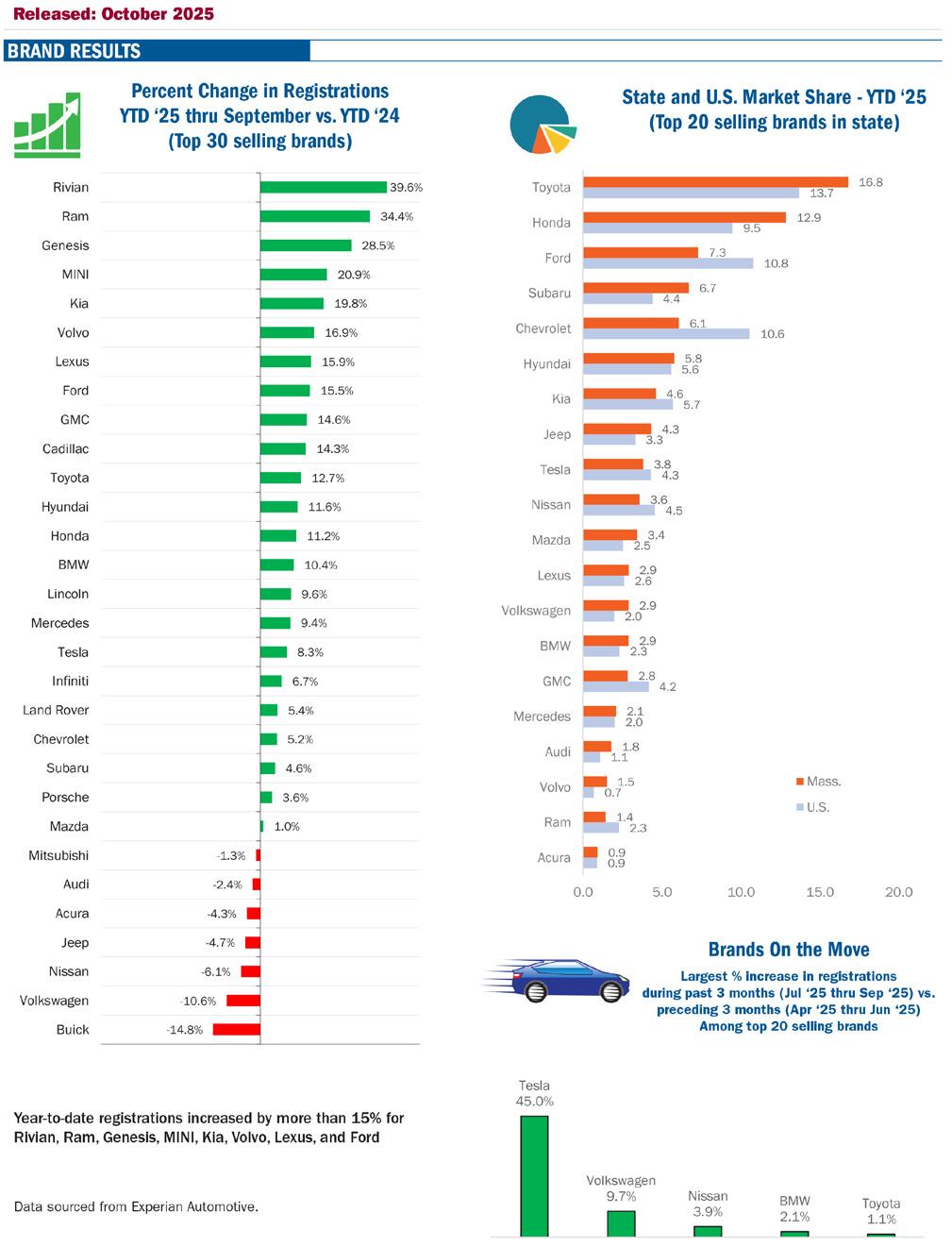
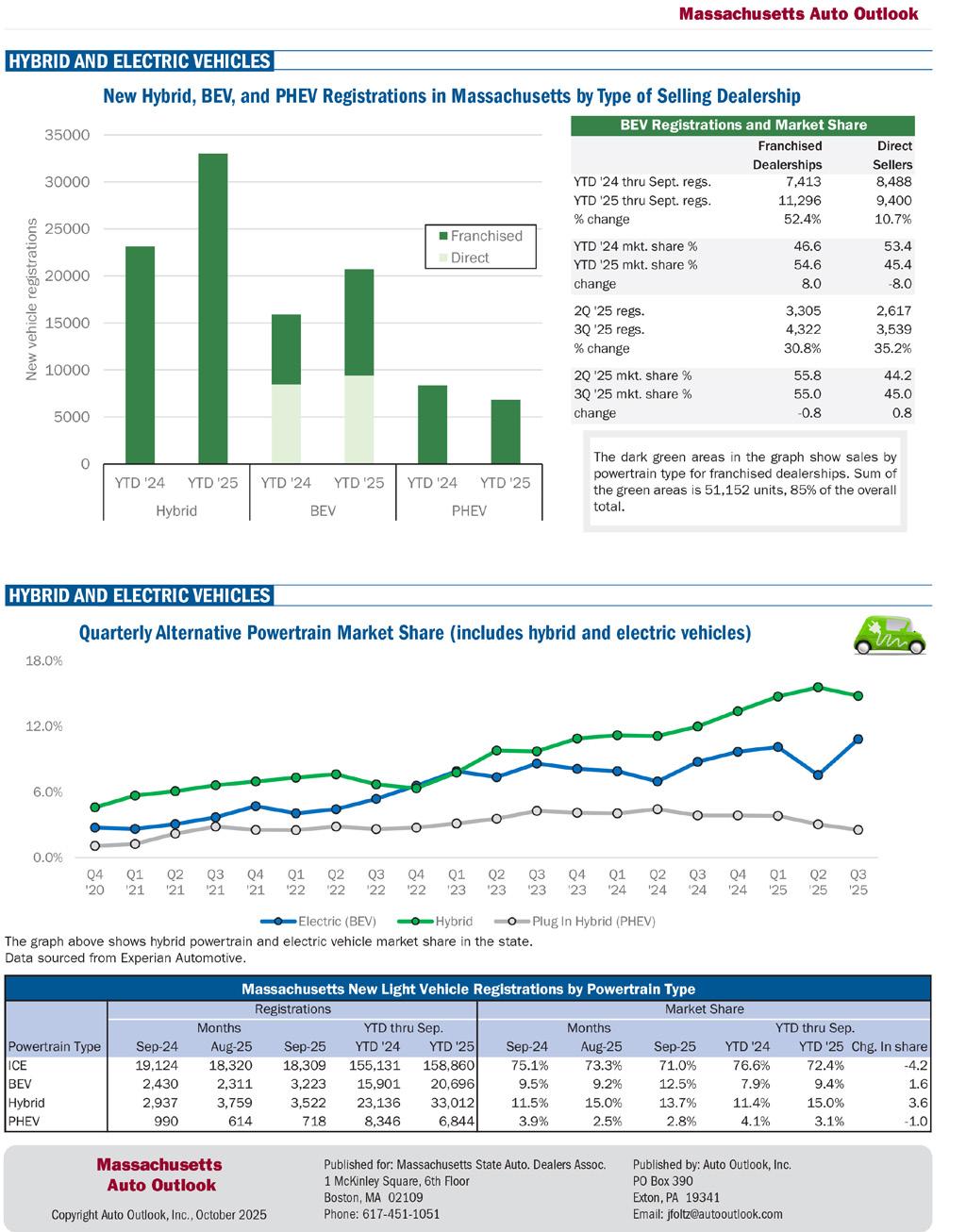
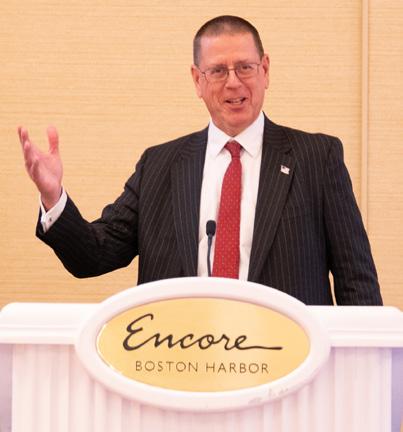
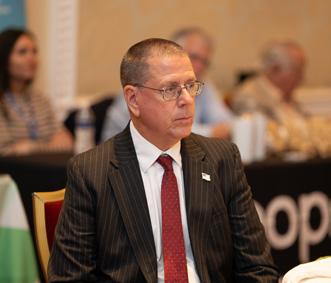


MSADA Executive Vice President

RMV Updates
Colleen
Ogilvie
Registrar, Massachusetts Registry of Motor Vehicles
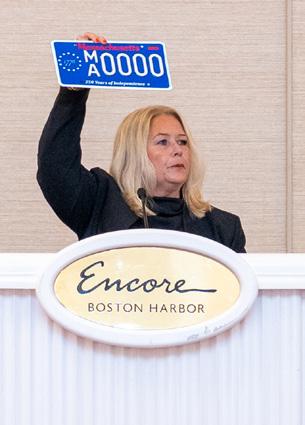



Jeb Balise
Balise Auto Group
MSADA President

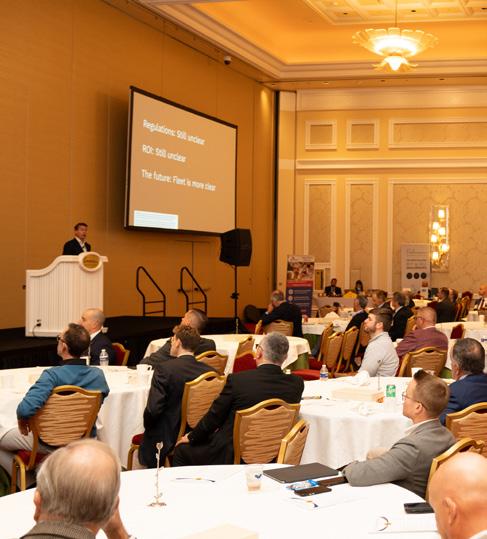
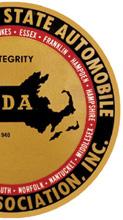

Vehicle Market Update and Outlook
Mark Strand
Cox Automotive – Senior Director, Economic and Industry Insights

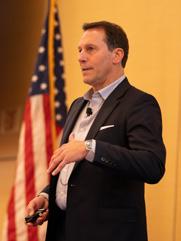

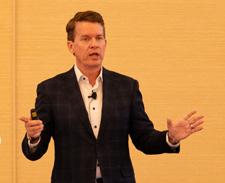
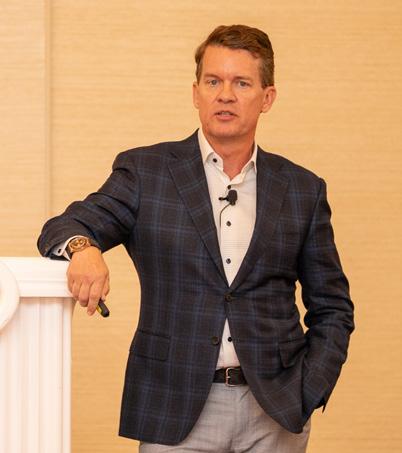
FEATURED SPEAKER
A Crystal Ball on the Road Ahead: From Wild Challenges to Massive Changes
Jason Stein Managing Director The Presidio Group
Driven to Comply: Recent Enforcement Trends Targeting Auto Dealers
Terry Flynn

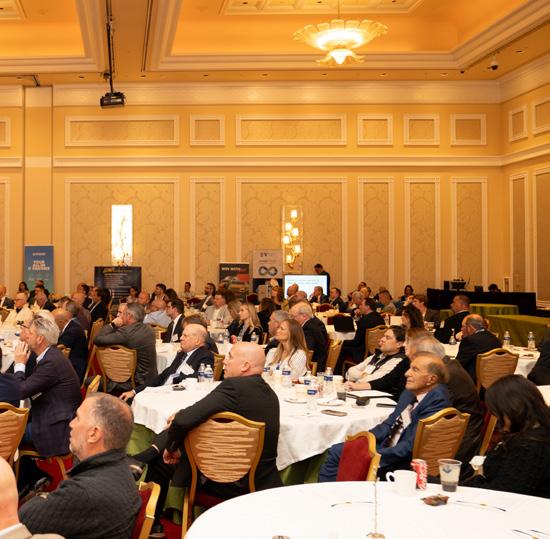
Partner, Harris Beach Murtha Cullina
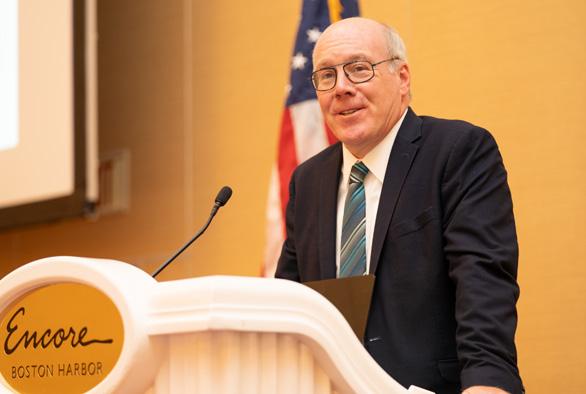
Scott Dube
McGovern Hyundai Rt. 93, Massachusetts NADA Director

Michael Stanton
CEO &
President,
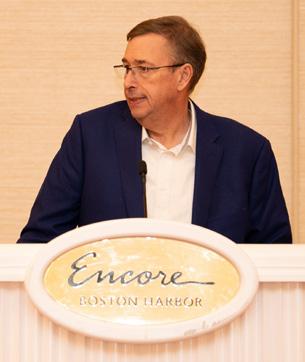
National Automobile Dealers Association

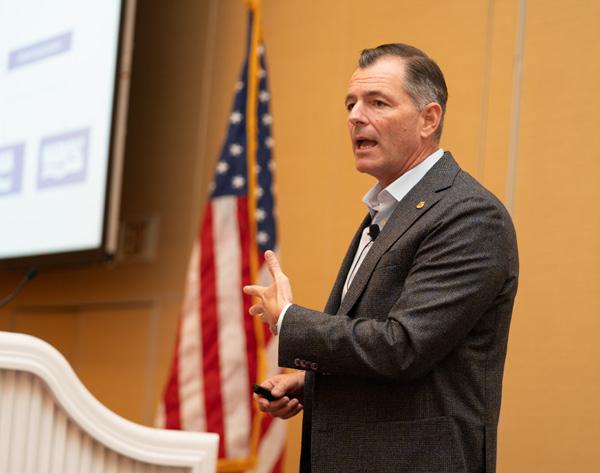

The Silent Equity Partner You Never Knew You Had Don Giordano
Business Development, Merchant Advocate


Take Control of Your Dealership’s Energy Costs
Steve Borelli
Energy Portfolio Manager, Sprague Energy
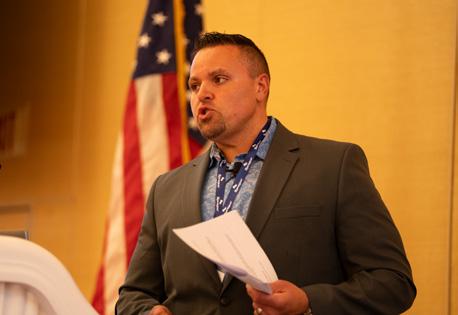
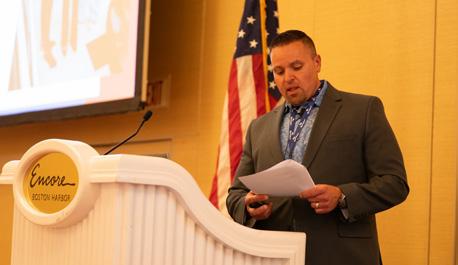

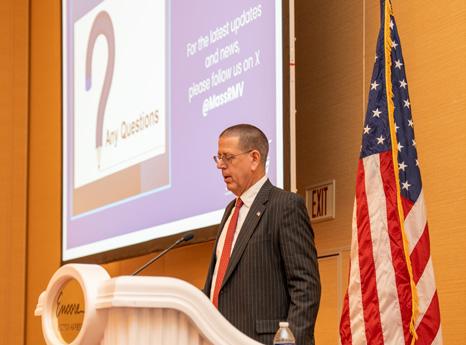
Reducing Health Care Costs at Your Dealership
Shawn Allen Managing Principal, OneDigital Legislative and Regulatory Updates
Robert O’Koniewski
MSADA Executive Vice President
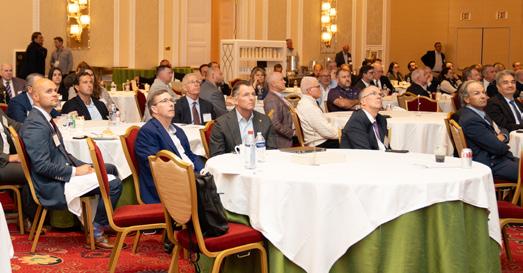

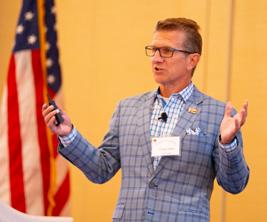

Removing EV Charging Headaches & Reducing Electricity Delivery Costs
Chris Nihan President, EVready Energy


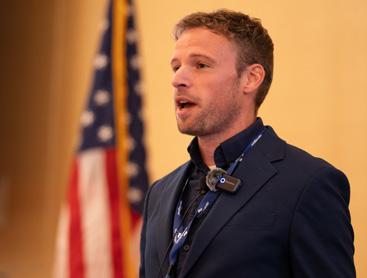



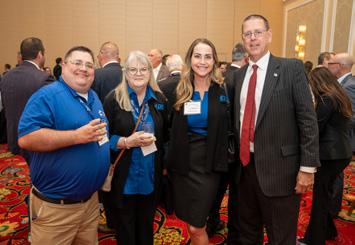

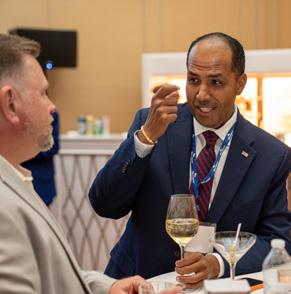




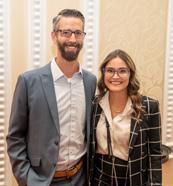
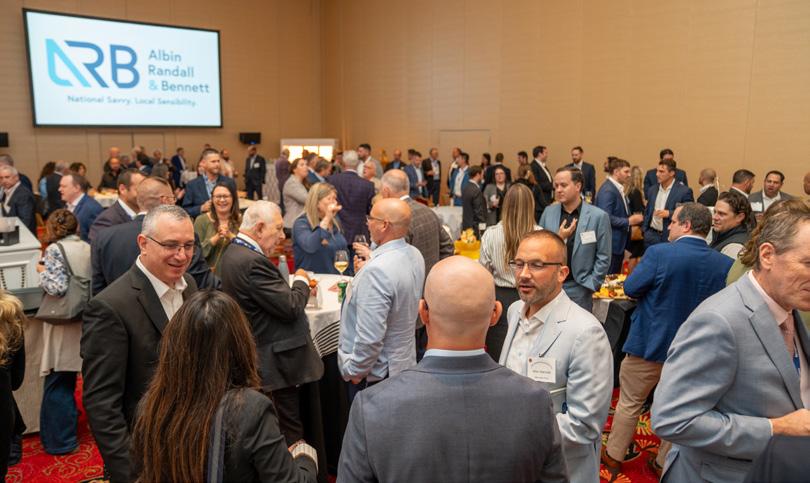




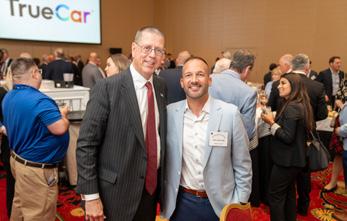

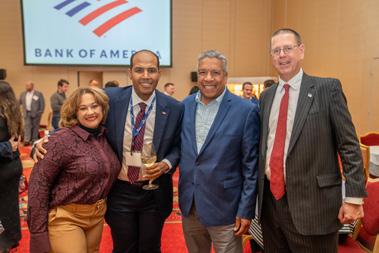




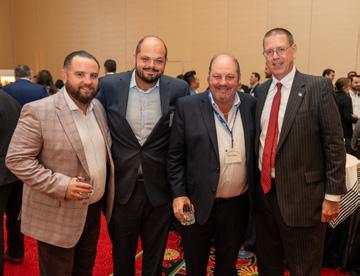



DIAMOND SPONSORS
ComplyAuto
TrueCar
PLATINUM SPONSORS
Albin, Randall & Bennett
CVR
Sprague Energy
Withum
Zurich
GOLD SPONSORS
Arent Fox Schiff
Bank of America
Cox Automotive
Wells Fargo
SILVER SPONSORS
Armatus
Cooperative Systems
DealerPay
Huntington Bank
Reynolds & Reynolds
Santander
BRONZE SPONSORS
ACV
Citrin Cooperman
EVready Energy
GW Marketing
Merchant Advocate
National Grid
One Digital
Performance Brokerage Services
WELCOME RECEPTION SPONSOR
eDealer Services
BREAK STATION SPONSOR
Downey & Co.
COCKTAIL RECEPTION SPONSOR
Harris Beach Murtha Cullina
WI-FI SPONSOR
TrueCar


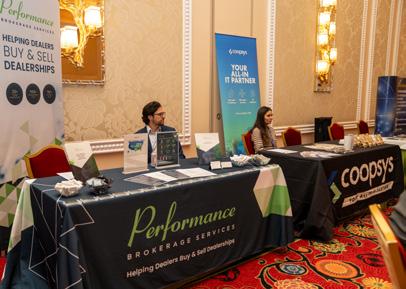


According to Nancy Phillips Associates and Automotive News, Matt McGovern of the McGovern Auto Group has purchased Kelly Ford in Beverly. Kelly Automotive Group has been in business for 60 years and acquired the former Thomas Ford store in 2015. The new owner, Matt McGovern, now represents the Ford brand in four dealerships across Eastern Massachusetts. McGovern Automotive Group ranks No. 46 on the Automotive News list of top 150 dealership groups based in the U.S. Kelly Automotive Group ranks No. 141 on the list.
On October 7, Aida Torres of Ware was surprised with a new Hyundai Tucson for her dedication to providing food to those in need since the COVID-19 pandemic, as recognized by Hyundai’s Salute to Heroes program.
Each year, Hyundai accepts nominations from the community for ordinary people who are doing extraordinary work. The surprise took place during one of Aida’s food giveaways in Palmer.
Being selfless is nothing new to Aida, since the COVID-19 pandemic, she says that God called on her and she made it a reality by doing free food giveaways, three to five times a week in western Massachusetts and beyond. Torres was gifted a new car for her dedication to putting food on many people’s plates. “I take very little. My volunteers know I take very little for myself. But my people come first,” said Aida.
There were over 500 total nominations, and more than 30 of them went to Aida. Nicole Coakley from Springfield praised Torres, saying, “She’s just so amazing, very humble and helpful, always willing to be there and help the community.”
Gary Rome, President and CEO of Gary Rome Auto Group, stated, “A brand new Hyundai Tucson, it comes with all the safety features, also comes with a 100,000-mile warranty, it comes with three years of complimentary maintenance, and it’s also very safe.”
Brian Houser, General Manager of Balise Hyundai, stated, “So fantastic to see all these people here picking up their necessities for their refrigerator, and she gets to win a new car at the same time.”
Aida Torres’s commitment to her community has not only provided essential support to those in need but has also earned her recognition and a new vehicle to aid her efforts. Hyundai plans to feature a picture of Torres with her new car on I-91, celebrating her contributions to the community.
Ford Motor Company recently honored Bonnell Motors in Winchester with a 100-year award. Steven Bonnell, president of Bonnell Motors, received the award from John Cable, Ford Motor’s regional manager, at an event at Fenway Park in Boston.
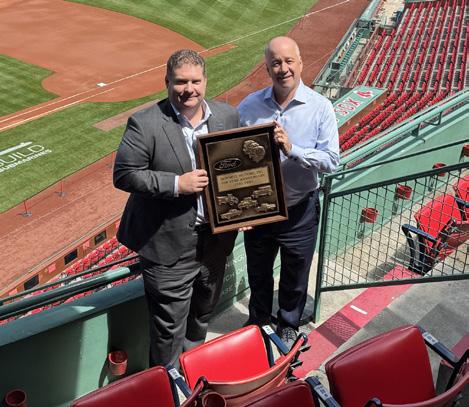
Boston Business Journal recently recognized OCD Tech LLC, an MSADA associate member, as one of the largest IT consulting firms in Massachusetts. Led by managing principal Michael Hammond, the firm has a total of 10 information technology consultants in the Commonwealth with total 2024 revenue of $7.5 million.
On October 9, Automotive News held its annual ceremony at the Country Music Hall of Fame in Nashville to honor its Top 150 Dealerships To Work For in the U.S. This year, Asbury Automotive Group’s Audi Burlington came in at #102.
The Top 150 awards recognize the leading dealerships that
have built extraordinary workplaces full of enthusiastic and engaged employees. Automotive News partner, Workforce Research Group, collected and analyzed employer and employee surveys to compile overall and category rankings.
In the large dealership sub-group ranking (5,000 or more dealership group employees), Audi Burlington came in at 19 out of 29.
By C.J. Moore, Automotive News
Total employment at U.S. franchised dealerships rose in 2024 to an estimated 1.13 million, a benchmark not seen since before the COVID-19 pandemic, though what employees earned on average fell, according to the National Automobile Dealers Association.
Dealerships’ total employment fell to 1.01 million in 2020 — as dealerships cut jobs when salesrooms shuttered — and has been gradually climbing back as new-vehicle demand has returned to stores, according to the NADA Data 2025: Midyear Report.
“We’re finally back to that pre-pandemic level of employment

around 1.1 million,” NADA Chief Economist Patrick Manzi told Automotive News in October.
Individual franchised dealerships in 2024 also added one employee on average compared with 2023, as operations rightsized hiring to meet the market, Manzi said. The average number of employees per store was 65 at the end of June, up from 64 at the end of June 2024 and 63 in June 2023, according to NADA.
The association report provides a picture of sales, compensation, inventory levels, and more.
NADA’s data also showed average and median earnings for dealership employees fell in 2024 as payrolls normalized from 2022 and 2023, when sales staff benefited from high new-vehicle demand.
“There wasn’t a ton of negotiating going on between the dealer and the customer, and so those vehicles sold very close to MSRP,” Manzi said. “That can inflate what is paid to a member on the sales staff.”
Average weekly earnings per employee for NADA’s total sample of dealerships — 2,471 dealerships — fell 1.7 percent year over year to $1,897 in 2024. Median weekly earnings fell to $1,463, down 0.1 percent.
“Moving into ’24, we had a much more normal market where inventory was building,” Manzi said. “You had more discounting on the vehicle. What those sales staff were paid on was a little bit less.”
New-vehicle inventory to end 2025 lower than expected
The 16,972 light-vehicle dealerships in the U.S. sold 8.1 million vehicles through June this year, according to the NADA report. The association reported 16,957 dealerships at the end of 2024.
Total franchised light-vehicle dealership sales totaled more than $645 billion in the first half of 2025, up from $613 billion in the first half of 2024.
Dealerships wrote more than 137 million repair orders, with service and parts sales ringing up to more than $81 billion, during the first half of 2025, the association said. That’s up from 133 million repair orders during the same 2024 period for service and parts sales exceeding $76 billion.
Consumers visited dealerships this spring to make a purchase before President Donald Trump’s tariffs on imported vehicles and parts took effect. Sales rates in March and April were abnormally high as a result, Manzi said in the report.
The average store has seen increased revenue and throughput through the first half of 2025, Manzi said.
New light-vehicle inventory on the ground and in transit was 2.82 million to start 2025 but dropped 6.6 percent to 2.6 million at the end of June as tariffs implementation drove more sales, according to the report.
“Before this new tariff policy, inventory levels were expected to increase throughout the year, but now we expect that new light-vehicle inventory will end 2025 around 2.5 million units,” Manzi said.

By Barton Haag CPA, Albin Randall & Bennett
Electric vehicle (EV) requirements and incentives are in a period of transition across New England. Between shifting state sales mandates, adjustments to rebate programs, and the recent expiration of the federal EV tax credit, 2025 has been a year of uncertainty and change. For Massachusetts auto dealers and financial leaders, especially those with operations in more than one state, it is critical to understand how these developments are shaping customer demand and compliance expectations.
Below is an overview of recent updates in Massachusetts and neighboring states, along with key takeaways for dealers navigating this evolving landscape.
The federal EV tax credit, which has helped sustain consumer demand, expired at the end of September 2025. Many buyers rushed to complete purchases ahead of this deadline, creating a short-term spike in sales. Certain OEMs have stepped up to offset the loss. For example, Hyundai has reduced prices on some models through October, while Ford and GM have acquired vehicles for leasing so they can pass credits along to customers, a proposed activity which has raised politicians’ and regulators’ eyebrows. Knowing what programs are available for your franchises will be key to guiding buyers through affordability questions and explaining which incentives remain at the point of sale.
This Spring, Massachusetts regulators announced that enforcement of EV sales mandates will be delayed for two years, providing manufacturers and dealers with more time to adjust to new requirements.
While easing compliance pressure, the state continues to invest in adoption through consumer rebates and charging infrastructure. The MOR-EV program remains in place, offering rebates up to $3,500, and the state has committed more than $40 million to public charging. Dealers face a softer regulatory timetable but ongoing opportunities to leverage incentives.
Connecticut’s CHEAPR program remains in place, but adjustments in 2025 reduced standard rebates for new EVs after a surge in applications tied to the federal credit’s pending expiration. The state continues to provide enhanced rebates for lower-income buyers. Dealers should pay close attention to ongoing program adjustments, as changes may affect both eligibility and sales volumes.
Maine continues to support EV adoption with a combination of rebates and charging programs. While the state has maintained a supportive policy environment, infrastructure remains uneven, particularly in northern and rural areas. Dealers in these markets should be ready to help customers weigh state rebate opportunities against practical considerations like charging access and range.
New Hampshire has paused a state program to expand EV charging access, citing administrative and funding challenges. This has raised concerns about availability in rural areas, where infrastructure is already limited. Dealers in or near New Hampshire should anticipate buyer questions about range confidence and charging options.
Rhode Island continues to offer rebates on new and used EVs through its statewide program, alongside financial assistance for home and workplace charger installation. These incentives can meaningfully reduce out-of-pocket costs for buyers and should be a central part of the sales conversation for dealerships serving Rhode Island customers.
Like Massachusetts, Vermont is delaying enforcement of its zero-emission vehicle (ZEV) sales requirements, citing infrastructure and supply concerns. These mandates may be reactivated in future years, but, for now, the regulatory pressure has eased.
• Different rules across state lines: Incentive amounts, compliance timelines, and program eligibility vary widely across New England. Buyers may shop in states offering the best deals, so understanding each program is essential.
• Infrastructure matters: In states where charging expansion has slowed or paused, customer hesitancy may impact EV sales more than financial incentives.
• Timing is critical: Federal credit expirations, state rebate adjustments, and delayed mandate enforcement can all create demand spikes or lulls. Dealers should align inventory planning and marketing efforts accordingly.
• Communication builds confidence: Sales teams who can clearly explain available rebates, credits, and compliance rules will be better positioned to close deals and maintain customer trust.
The EV landscape in New England is in flux, with each state taking a different approach to balancing mandates, incentives, and infrastructure. For Massachusetts dealers, the immediate priorities are monitoring state program changes, guiding customers through incentive deadlines, and preparing business plans that account for diverging policies across the region.
Dealership owners and financial decision-makers should take this moment to review sales strategies, update staff training on state-specific incentives, and strengthen communications with customers. Staying informed and adaptable will be the key to navigating this transition and to capturing opportunities as the market evolves.


“Merchant Advocate found a costly error—our software was not passing along all the necessary information—and worked directly with our provider to resolve the issue. We’ve already saved more than $70,000 as a result. I recommend having Merchant Advocate look at your account.”
–Denise Devoe, Corporate Controller

“Not only did Merchant Advocate uncover a significant optimization opportunity, but they also helped us replace 100 out-of-date terminals—for free! We are looking forward to more than $60,000 in savings in our first year. Merchant Advocate took care of everything—the process couldn’t have been any easier for us.”
–Jeb Balise, President

“Within the first two months of working with Merchant Advocate, we’ve saved over $4K in credit card fees across our 9 Merchant IDs! I wholeheartedly endorse Merchant Advocate for any business seeking to optimize their payment processing costs and enhance their financial health. Their vigilant monthly oversight of our statements ensures that we are not subjected to the pitfalls of an unregulated industry.”
–Joe
Bonofiglio,
C o r p o r a te C o nt r o l l e r

There are over 1,500 attorneys in the United State who focus on legal actions against car dealers.
Who reviews your F&I documents for legal or regulatory changes?
What if your dealership had access to a complete suite of documents needed in F&I?

Only the LAW F&I Library™ provides:
A complete set of state-specific F&I documents in both pre-printed and electronic formats.
An industry leading team of in-house and outside legal resources reviewing forms for legally required and best practice updates.
A trained team of compliance consultants who can work with you to manage your compliance risks.
By Attorneys Tom Vangel, Jamie Radke, and Lindsey McComber, Harris Beach Murtha Cullina PLLC
As reported by Bob O’Koniewski in the July edition of Massachusetts Auto Dealer, the auto manufacturers are seeking to use the Department of Justice’s newly created Anticompetitive Regulations Task Force to undermine the state law protections for franchised dealers.
On March 27, 2025, the Department of Justice (DOJ) launched its Anticompetitive Regulations Task Force and invited public comment to identify “state and federal laws and regulations that undermine free market competition and harm consumers, workers, and businesses.”
The Anticompetitive Regulations Task Force seeks to identify and advocate for the elimination of state and federal laws and regulations that hinder free market competition for the benefit of consumers, workers, and businesses. After receiving input, the Task Force may then advocate for the elimination of those laws and regulations to “make it easier for businesses to compete.”
In response to the DOJ’s request, auto manufacturers, through their trade association, submitted comments alleging that state franchise laws harm consumers. Specifically, the Alliance for Automotive Innovation (“Alliance”) submitted public comments seeking to have the DOJ scrutinize and repeal state law protections for franchised auto dealers. The focus of the Alliance’s comments to the DOJ includes requesting changes to: (1) state laws restricting the establishment of new motor vehicle dealerships in relevant market areas of existing same line make dealers and (2) state laws setting minimum levels of compensation to dealers for warranty service.
Particularly, the Alliance argued that state statutory provisions protecting the “relevant market area” of existing dealers and allowing for an automatic stay of a proposed new dealership during any
legal process, as provided in some state franchise laws, allows dealers to “protect themselves from increased competition and delay the establishment of a new dealership…without regard to the effects on consumers.”
In addition, the Alliance argued that warranty reimbursement statutes discourage price competition and incentivize higher prices for all service work on motor vehicles. It also argues that statutes incentivizing the use of third-party time guides to calculate warranty reimbursement encourage dealers to inflate the time and resulting expense charged for retail repairs paid for by consumers.
These comments attack at the heart of the protections afforded to Massachusetts dealers under Chapter 93B. Chapter 93B significantly restricts manufacturers from entering into a franchise agreement with a motor vehicle dealer that would operate within the relevant market area (“RMA”) of an existing same line make dealer. Years ago the MSADA fought hard to establish RMA mileage definitions that eliminate the need for expensive experts and protracted legal process to determine the RMA of individual dealers.
Simply put, under current law, if a dealership is located in the counties of Bristol, Essex, Hampden, Middlesex, Norfolk, Plymouth, or Suffolk, its RMA is the entire land mass encompassed in a circle with a radius of 8 miles from any boundary of the dealership. If a dealership is located in the counties of Barnstable, Berkshire, Dukes, Franklin, Hampshire, Nantucket, or Worcester, then the RMA has a radius of 14 miles from any boundary of the dealership.
With respect to warranty reimbursement, Chapter 93B in Section 9 requires that compensation shall be fair and adequate and shall “not be less than the rate and price customarily charged for retail
customer repairs[.]” The statute protects dealers by establishing reimbursement rates based on actual customer repairs rather than using rates and time guides established by manufacturers, which are often viewed as unrealistic and unfair.
In July, the NADA sent a strongly worded response to the Alliance’s submission to the DOJ. The NADA noted that the Alliance’s submission goes beyond policy disagreements and “constitute[] a broadside attack on our members and erodes trust between dealers and manufacturers.” The NADA noted that the Alliance’s comments “are nothing short of an invocation of federal authority to attack the franchise system writ (sic) large.” The NADA further provided detailed analysis refuting the Alliance’s contentions that RMA and warranty laws hurt consumers and are anti-competitive. The NADA pointed out that RMA laws ensure that there is an appropriate balancing of the interests of the various market participants administered by an independent fact finder.
With respect to warranty laws, the NADA noted that warranty repairs and recalls represent a cost to the manufacturers and, therefore, the OEMs are not necessarily incentivized to do all that is necessary to complete that work. Franchised dealers, on the other hand, are incentivized to fully and properly complete this work in order to retain the customer.
We will need to monitor closely the actions of the Task Force and the Alliance over the coming months to vigilantly protect our franchise system.
Tom Vangel and Jamie Radke are partners and Lindsey McComber is an associate with the law firm of Harris Beach Murtha Cullina PLLC in Boston who specialize in automotive law. They can be reached at (617) 457-4072.
By Attorneys Greg Paonessa, Sara Judge, and Paul Harris of ArentFox Schiff LLP
It is a common service department scenario: a customer drops their vehicle off for repairs and as the technician is working through the vehicle, a previously unknown issue is discovered that needs remediation, but you do not have the customer’s authorization. In some circumstances, you may be able to get written authorization in person, via text or email. However, in certain instances, a customer may not respond to text messages or emails, so you need to get verbal authorization from the customer to proceed with the necessary repairs.
While one would think a simple phone call to the customer during which they give verbal authorization should resolve the issue, there is very specific information that must be maintained concerning that discussion or else verbal authorization may not be valid.
For guidance on how to obtain valid verbal authorization to conduct repairs, one need look no further than your trusty Massachusetts Motor Vehicle Regulations, 940 CMR 5.00 (the “Regulations”). Pursuant to Section 5.05(3) (c) of the Regulations, if the repair shop is unable to get written authorization to perform specific repairs, then prior to commencing the repairs, the shop must verbally notify the customer of: (i) the specific repairs to be performed, (ii) the total price to be charged, including parts and labor, and (iii) obtain authorization to perform such repairs. Now comes the important part: memorializing such verbal authorization.
Pursuant to Section 5.05(5) of the Regulations, it is an unfair or deceptive act or practice for a repair shop that obtains verbal customer authorization to fail to maintain written records containing the following information: (a) the date and time authorization was received; (b) the name of the employee receiving oral au-
thorization and the name of the person granting such authorization; (c) a statement of the exact authorization received; and (d) if such authorization was obtained over the phone and the shop placed the call, the phone number called.
Given the standard nature of the information required to comply with the Motor Vehicle Regulations when obtaining
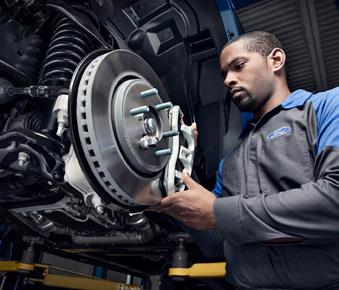
Maintaining and displaying or disclosing the straightforward information required by Sections 5.05(4) and (5) could be the difference between your dealership being paid for repairs performed or potentially having to perform such repairs gratis.
verbal authorization, we recommend a simple form be created and maintained at the service advisors’ station and that the completed form be maintained with any repair order done on verbal authorization.
We also recommend, as a best practice, that you follow up with the customer after obtaining verbal authorization via email or text message confirming the verbal authorization and what services were approved based thereon, including all of the information required by Section 5.05(5)(a) – (d).
While the Motor Vehicle Regulations, and to our knowledge a court, have not addressed such confirmation and whether it is required or would act as a safe harbor if such verbal authorization is later challenged, we believe it is best practice. If nothing else, it creates a presumption that if the customer did not agree, they would respond accordingly.
It should also be noted that, pursuant to Section 5.05(4) of the Regulations, prior to obtaining any written or verbal authorization, the customer must be informed: (a) of the conditions under which the repair shop may impose storage charges and the daily or hourly amount for same; (b) that, upon request, the customer has the right to have replaced parts returned to the customer once the repair is complete, or to inspect such parts if the shop must return same to the manufacturer under a warranty program; and (c) the cost to be charged for an estimate or diagnosis.
While the information or disclosures required by Section 5.05(4) may be provided to the customer by posting same on displays in a clear and conspicuous manner on the repair shop’s premises, failure to make such disclosures is also an unfair or deceptive act or practice.
Maintaining and displaying or disclosing the straightforward information required by Sections 5.05(4) and (5) could be the difference between your dealership being paid for repairs performed or potentially having to perform such repairs gratis. t
If you have any questions regarding whether your dealership complies with these or other applicable Motor Vehicle Regulations, the attorneys at ArentFox Schiff are available to do a full regulatory and compliance review.






Choosing a local dealership broker with a lifetime of experience in the Northeast is your best bet. We will sell your dealership(s) for maximum value. We will sell you a store hassle-free with honesty and integrity. We have the BEST reputation in the Northeast, bar none! We have sold more stores here in the past 45 years than any other broker. National brokers cannot offer you that hands on experience here! To us, you aren’t just another number. Our focus is on your needs. Our mission is to provide the highest level of service to our clients by achieving results in a timely, professional, confident manner.
➥ We have a long term, very close, productive working relationship with VADA dealer members.
➥ Highest level of integrity and Buyer and Seller loyalty
➥ Our clients now include the FOURTH Generation of our original clients
➥ Highest volume of brokered dealership transactions in New England bar none
➥ We are the most experienced brokers
➥ Deals get done using brokers not lawyers or accountants to negotiate the best deals for clients
➥ We are local
➥ No alien broker can compete
➥ No one knows this market better than Gordon Wisbach over 4 decades A preferred broker in New England for 45 years

Contact Gordon Wisbach for


By Nick Reed
Senior IT Security Analyst, OCD Tech
The costs of a data breach stretch far beyond the immediately apparent recovery expenses, such as hiring third-party experts, investigation costs, or even making ransom payments. Considerable attention has been given to the initial stages of a breach, leading many to conclude that the financial impact is nearing its conclusion. However, the aftermath of a breach entails additional costs that can significantly reshape how businesses assess the importance of maintaining a strong cybersecurity program.
This article examines the often overlooked and misunderstood costs of a data breach by exploring factors that arise after the initial crisis has passed, ensuring businesses are well-prepared.
According to 2023 NADA data, the average car dealership sells approximately 1,000 new vehicles per year. In parallel, the average dealership likely receives 1,000 unique customer records annually. Although this amount may appear minimal, representing only one year of customers, their exposure can still have a substantial impact.
Nearly half of all U.S. states have comprehensive data privacy regulations that require credit monitoring in certain cases. Massachusetts law, for example, mandates credit monitoring if a breach compromises Social Security numbers.
Under the Massachusetts Data Breach Notification Law (MGL Chapter 93H), the breached entity must provide at least 18 months of free credit monitoring to affected individuals.
As a starting point, credit monitoring costs around $10 per month per customer, but discounted pricing for volume is typically available for businesses. Over 18 months for 1,000 customers, this amounts to $180,000.
Now, consider the additional costs of breach notification. At the time of writing, sending letters to 1,000 individuals costs approximately $1,000 in supplies. An additional cost to consider is the time required for addressing, filling, and mailing these letters. This project will necessitate a number of employee hours or expenditures for outsourcing to a third party.
After breach notification is made, you might think the worst is over; systems have been recovered, and the fallout from notification is being managed. However, now that customers are formally notified of the breach, the business is likely to face class action lawsuits from customers alleging mishandling of their data. Recent dealer breaches show how swiftly these situations can develop, with lawsuits being filed only days after breaches are publicized.
With the caveat that I am not a lawyer and that these cases are not directly comparable, given that they involved large corporations and many plaintiffs, historical data from some of the nation’s largest breaches suggest an average payout of approximately $150 per individual in class action settlements. Conservatively applying this figure to our scenario, 1,000 affected customers would result in $150,000 in compensation.
If the breach is not deemed egregious and a moderate payout of $150 per con-
sumer is awarded, legal fees for opposing counsel could match or exceed that amount. Opposing counsel’s fees are typically calculated as a percentage of the settlement, ranging from 25-50%. This could easily add another $75,000 expense. Retaining counsel on behalf of the business in Massachusetts costs an average of $300 per hour. While the total number of case hours can vastly vary based on the complexity. Assuming a single attorney works 50 hours, given that cases of this nature often span months, that would add another $15,000, bringing the new total legal costs to an estimated $420,000.
When consumers suffer financial losses because of the breach, the legal situation drastically shifts and expenses surge. A 2022 data breach at a dealer in the Southwestern U.S., which impacted nearly 1,000 customers and closely aligns with the presented scenario, provides valuable insight into potential costs. Consumer losses in this case fell into two categories: ordinary and extraordinary. Ordinary losses, such as travel expenses, lost wages from time spent addressing the breach, or bank fees, resulting in settlement amounts ranging from $500 to $1,000 per individual. Extraordinary losses, where fraud or identity theft occurs due to the breach, lead to a significantly higher payout of $5000 per affected individual.
Given the parallels between the 2022 dealer breach and the example case, these figures serve as a relevant benchmark for estimating potential legal exposure. In this scenario, assuming no losses occurred, the potential costs will not be speculated on. However, it is important to consider this data as a key factor.
The FTC Safeguards Rule mandates that dealerships implement cybersecurity

allocating a portion of the budget to effective cybersecurity practices is generally more economical than dealing with the financial consequences of a data breach.
practices that align with crucial security practices, with penalties for non-compliance reaching up to $43,792 per violation. While the FTC has not yet indicated any enforcement actions under this rule, the penalties are steep enough that if enforced, they could have devastating effects on a business.
In addition to federal regulations, businesses must also consider state-level requirements. In Massachusetts, breaching the 201 CMR 17.00 Data Protection Standards can lead to civil penalties of up to $5,000 per affected individual. The standard imposes similar protections to the Safeguards Rule.
Certain factors of a breach are difficult to quantify, yet they can have substantial consequences. Cyber insurance premiums
often increase significantly after a data breach. Premiums can rise by double digits, depending highly on specific situation details and the insurance carrier. These increases can strain budgets and complicate future planning.
The loss of business and the potential damage to public relations must also be a consideration post breach, many customers may lose trust in a dealer. While some customers may never return, others may be quick to forget the breach, especially if the company demonstrates strong remediation efforts.
Additionally, reputational damage can have long-lasting effects on a company’s brand. Even if a company works to restore its public image, the breach may still linger in customers’ minds. The cost of rebuilding trust is often difficult to measure but can be substantial, in-
volving marketing campaigns, customer outreach, and possibly even a complete rebranding.
A comprehensive cybersecurity program involves recurring costs; however, allocating a portion of the budget to effective cybersecurity practices is generally more economical than dealing with the financial consequences of a data breach. The expenses associated with a breach typically surpass those of maintaining a robust security program, which can also offer other benefits in addition to preventing breaches. It is prudent to invest in a small recurring cybersecurity cost than to risk the massive financial impact of a breach, which can have the potential to drive businesses out of operation.

By Scott Spatz CEO, Cooperative Systems
If you manage or work in an auto dealership, you know how much information flows through your business on a daily basis. From customer contact details and sales agreements to service records and parts inventory, data are everywhere. And we do mean everywhere.
It is tucked away in your DMS, saved in spreadsheets on desktop computers, floating in the cloud, attached to emails, and stored in software platforms you forgot you were even using. It is not hard to imagine how that can become overwhelming…or risky.
So, what is the solution? How do you gain control over your dealership’s scattered data?
Let us say your service manager uses one system for scheduling, your sales team uses another for CRM, and accounting has their own process entirely. Then you have shared folders on desktops, personal flash drives, archived emails, third-party vendors, and maybe even someone using Dropbox or Google Drive on the side.
That is not unusual, and it is not your team’s fault. Dealerships evolve, new tools get adopted, and over time, the data just...spreads. But as that happens, your risk exposure increases. You cannot secure what you cannot see. And you certainly cannot manage access, ensure compliance, or protect your customers’ information if you do not know where it all lives.
This is not just about cleaning up your digital workspace. Poor data control puts you at risk for:
• Security breaches – especially when sensitive data is stored without proper protections.
• Compliance issues – particularly with new regulations under the FTC Safeguards Rule.
• Operational inefficiencies – like employees working off old versions of documents or spending time searching for the info they need.
• Reputation damage – customers trust you with personal and financial data. If you lose it, that trust is hard to get back.
Getting a handle on dealership data might seem daunting, but it is doable and incredibly worthwhile. Here is a practical approach that works.
1. Identify Where Your Data Lives. Start by mapping out where data is stored across your dealership. That includes local servers, workstations, cloud apps, personal devices, and external vendors. Work with your IT team or provider to build a clear inventory of systems and file locations.
2. Categorize the Data. Next, separate your data based on sensitivity. This helps prioritize what needs tighter controls. For example:
• Public – marketing materials, job postings;
• Internal – training docs, general procedures;
• Confidential – employee records, sales contracts; and
• Highly sensitive – Social Security numbers, financial info.
3. Limit and Monitor Access. Only give access to the people who need it for their role. Avoid shared logins and make sure you review permissions regularly,
especially after someone changes roles or leaves the company. And yes, turning on multi-factor authentication (MFA) for key systems should be non-negotiable at this point.
4. Consolidate Where You Can. Using fewer platforms makes life easier for everyone. If you are using multiple systems that do similar things, it might be time to standardize. This improves security and streamlines training for new staff.
5. Put a Plan in Place. Once you have organized things, document your approach. This is key for both security and compliance, and it also helps when onboarding new employees or working with vendors. Set policies for:
• Where different types of data should be stored;
• Who is allowed to access them;
• How often systems are reviewed; and
• What happens in the event of a breach.
You do not need to fix everything overnight. But taking steps now can save you time, money, and a major headache down the road. Think of this like organizing your garage. Start with one corner, one shelf, one system at a time. Over time, it will come together.
At Coopsys, we help dealerships assess and manage their data environments, tighten security, and simplify operations. Whether you need help auditing systems, locking down access, or aligning with FTC guidelines, our team is here to help. Your data should not be running wild across your dealership. Let us help you take the wheel. Visit us at coopsys.com/ msada to learn more.






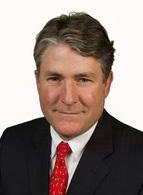
By Tim Marbut
Ethos Group
Every winning team has a playbook: a guide that defines the strategies, principles, and habits required to achieve victory. In the world of automotive retail, a salesperson’s playbook is no different. With vehicles evolving in design, technology, and price, customers expect more than product knowledge. They demand trust, solutions, and value.
To deliver consistently, every successful automotive salesperson must anchor themselves in four primary behaviors: proactivity, tenacity with knowledge, a clear game plan, and a positive attitude. Together, these create the foundation for not just making a sale, but also building long-term relationships that fuel referrals, repeat customers, and lasting success.
Proactivity is about taking the initiative before opportunities slip away. In automotive sales, it means reaching out to prospects before they step foot on the lot, following up after service visits, and anticipating customer needs rather than reacting to them. A proactive salesperson does not wait for the customer to ask about lease options; they highlight them upfront. They do not wait until a buyer expresses concern about fuel efficiency; they prepare with comparisons that ease concerns before they arise.
Consider the buyer researching SUVs online. A proactive salesperson identifies these digital leads, reaches out with per-
sonalized messages, and offers to schedule a test drive. In the showroom, they guide the conversation by asking thoughtful questions such as, “How will you be using this vehicle day-to-day?” or “What is most important to you: safety, technology, or towing capacity?” These proactive moves uncover needs the customer may not have fully articulated, giving the salesperson the advantage of shaping the decision process early.
In automotive sales, playing defense leads to being outpaced by competitors. Playing offense with proactive effort secures opportunities before they are gone.
Tenacity is persistence, but persistence without knowledge is like running in circles. The real difference-maker is tenacity with knowledge: the determination to continually learn, research, and master every detail of the product lineup, financing structures, and competitive advantages. A tenaciously knowledgeable salesperson does not simply memorize specs; they understand the “why” behind them.
For example, when a customer compares the Toyota Land Cruiser 1958 edition to a competing SUV, a salesperson who has studied safety ratings, reliability data, and ownership costs can confidently highlight the unique advantages. They can explain not just horsepower, but also why torque matters for off-road capability. They can outline the total cost of ownership and how it stacks up against the competition. Knowledge transforms tenacity into credibility, and credibility builds trust.
In an industry where information is at the customer’s fingertips, being tenacious about knowledge ensures the salesperson is not just matching what the customer knows. They are leading the conversation with deeper insight and tailored solutions.
Every winning athlete steps onto the field with a game plan. Likewise, the most effective automotive salespeople treat each day, each customer interaction, and each opportunity with preparation and purpose. A game plan prevents randomness and replaces it with structure that can be repeated.
A strong sales game plan includes:
• Daily Priorities: Identifying key prospects, setting follow-up calls, and reviewing inventory updates.
• Customer Flow: Preparing a set of discovery questions to uncover needs quickly and efficiently.
• Objection Handling: Anticipating common concerns such as monthly payments, trade-in values, or availability, and rehearsing solutions in advance.
• Closing Strategies: Knowing when to present options, when to step back, and when to confidently ask for the sale.
For example, when a customer visits to test-drive a 4Runner, the salesperson’s game plan might include walking them through trim levels, demonstrating key features like advanced safety technology, and addressing financing options before they become sticking points. A clear plan ensures no step is left to chance and every interaction moves toward a confident close.
Salespeople without a game plan rely on luck. Those with one create consistent results.
Automotive sales are as much about energy as they are about information. Customers buy from people they trust, and trust is built not only on expertise but also on how the salesperson makes them feel. A positive attitude sets the tone for every interaction. It turns objections into opportunities, delays into chances to deepen rapport, and challenges into steppingstones.

Every winning team has a playbook: a guide that defines the strategies, principles, and habits required to achieve victory.
A positive salesperson celebrates small wins, even when a deal does not close immediately. They focus on building relationships rather than treating every interaction as a transaction. For example, if a customer leaves undecided, the positive salesperson sees it not as rejection but as a step closer to a future sale. They follow up with encouragement, a thank-you note, or a helpful article comparing models. This optimism reassures customers that the salesperson is invested in their best outcome, not just in the day’s quota.
In a dealership environment, where competition, long hours, and customer objections can wear down even the best, attitude becomes the most renewable source of energy. A smile, confidence in the prod-
uct, and belief in the process often make the difference between closing a deal and watching it walk out the door.
When combined, these four behaviors – proactivity, tenacity with knowledge, a game plan, and positive attitude – form a powerful playbook for success in automotive sales. Proactivity secures opportunities before they slip away. Tenacity with knowledge ensures the salesperson is a trusted advisor. A game plan provides structure and consistency. A positive attitude creates the trust and energy that make customers want to do business.
Automotive sales are not about pres-
sure; they are about process. Customers do not just buy cars. They buy confidence, solutions, and relationships. By following this playbook, sales professionals transform themselves from order-takers into trusted guides. Just like in sports, the best players are not the ones who memorize plays. They are the ones who execute them with discipline, skill, and heart. t
For more information on how Ethos Group can help your dealership develop more leaders in your F&I office, sales management tower, and your sales floor in 2025, please contact Drew Spring at dspring@ethosgroup.com or (617) 6949761.
Patrick Manzi NADA Chief Economist

New light-vehicle sales in September 2025 reached a SAAR of 16.4 million units, up 3.5% year over year. September was a solid sales month as many consumers headed to dealer lots before EV tax credits expired on September 30.
Battery electric vehicle (BEV) sales hit an all-time high in market share and accounted for 11.8% of all new vehicles sold. This market share was up nearly two percentage points from August 2025, which was also a strong month for BEV sales. Year-to-date, BEV sales accounted for 8.4% of all new vehicles sold, an increase of 0.7 percentage points compared to the same period last year. For third-quarter 2025, BEV sales increased 24.1% year over year. Plug-in hybrid (PHEV) vehicles, which were also eligible for the tax credits, didn’t perform nearly as well as BEVs. PHEV sales in September 2025 accounted for just 1.7% of all new vehicles sold, which is right in line with their year-to-date market share of 1.8%.
The average discount on a new vehicle increased slightly from August to September. According to J.D. Power, average incentive spending per unit totaled $3,116, up just $24 compared to August 2025. J.D. Power notes that more incentive spending was targeted at EVs. Expressed as a share of the average MSRP, overall incentive spending is expected to be 6.1%, while incentive spending
for non-EVs should reach just 4.8%.
New light-vehicle inventory on the ground and in-transit totaled 2.65 million units at the end of September 2025, up by 6.2% compared to August 2025 but down 5.9% year-over-year. Looking ahead, we expect inventory levels to end the year slightly below their levels at the end of Q3. New light-vehicle sales have been solid so far through the third quarter, with a year-to-date SAAR of 16.4 million units, an increase of 4.7% year over year.
We believe there has been some significant pull-ahead volume, as consumers rushed to dealer lots earlier in the year before tariffs took effect and in recent months as consumers purchased EVs before the end of tax credits. The big question now: Will volume hold in the final quarter of the year and into next year as 2026 models arrive on dealer lots?
We have already seen several OEMs release price increases in the mid-single-digit percentage range for 2026 models, and we are watching closely to see how much, and when, OEMs will pass along tariff-related price increases. Given the strong sales performance so far, we have increased our 2025 sales forecast to 15.9 million units.
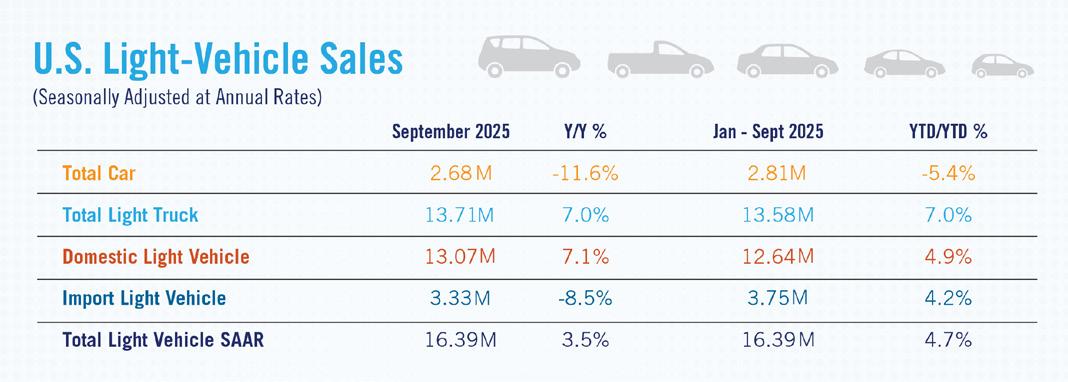
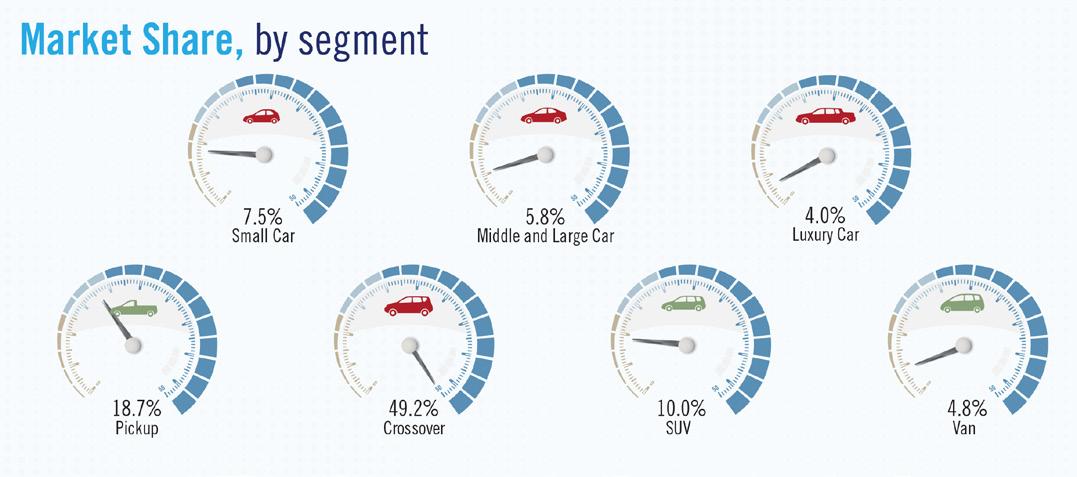
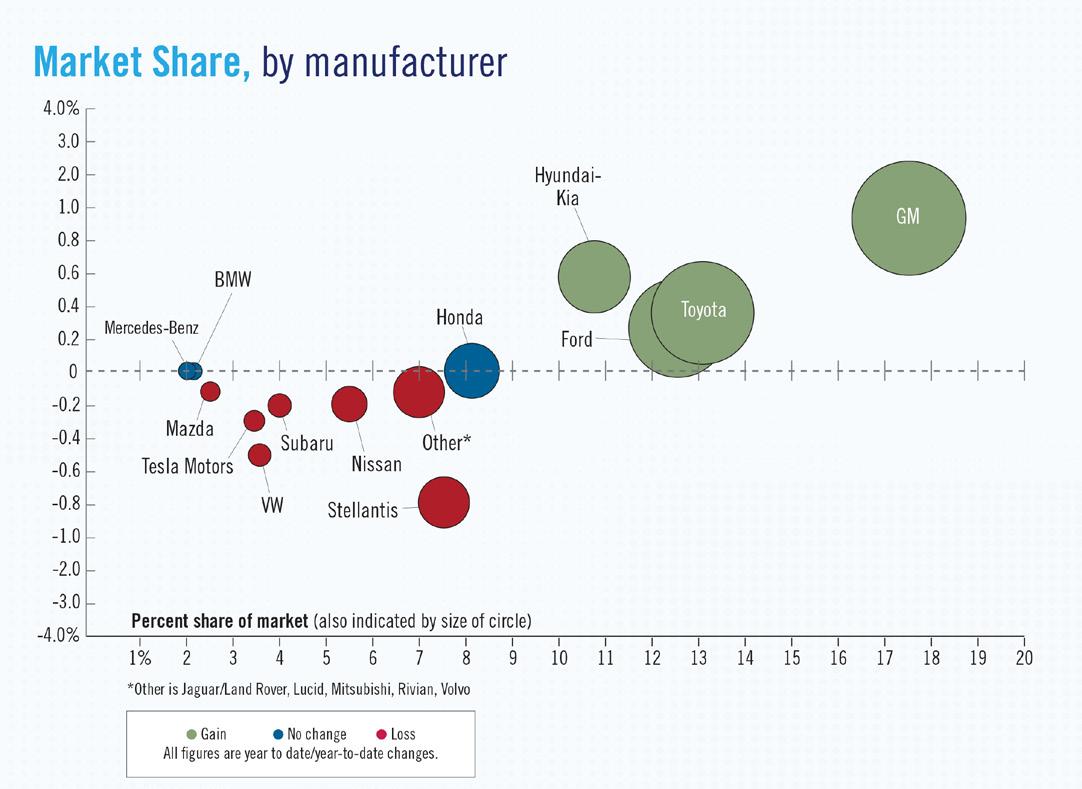

By Cody Lusk President & CEO, American International Auto Dealers Association
In April, President Trump announced 25 percent tariffs on imported vehicles and vehicle parts. While some new trade agreements, including those with the EU and Japan, have cut that number to 15 percent, costs on imported autos are up across the board. Now, six months later, the impact of tariffs is being felt not just by manufacturers but dealers and consumers as well.
The White House has offered some relief through tariff discounts, but it may not be enough to blunt their overall negative effect. Initially, manufacturers were willing to largely absorb the costs of tariffs as they waited to see how negotiations among world leaders would shake out. Now that price increases appear to be here to stay, OEMs are passing some of those additional costs on to dealers and consumers. When 2026 model year vehicles hit dealerships, Americans will be paying more for updated designs, improved safety features, and yes, tariffs.
It is no real surprise that automakers are no longer willing to bear the full brunt of the tariffs, which is estimated by Moody’s to cost about $30 billion this year alone. But how much can already cash-strapped shoppers be realistically expected to pitch in? Estimates on exactly how much tariffs are contributing to car prices vary, but Cox Automotive’s assessment of about $5,500 per imported vehicle seems to be on target.
Affordability has been an issue in the automotive retail industry long before tariffs

started impacting costs, but the problem has become more pressing of late. In September, the average price of a new vehicle hit an all-time high of $50,080 and nearly 20 percent of loans and leases now exceed $1000 in monthly payments. The average transaction price is up 3.6 percent from a year ago. Consequently, a record number of Americans are also now behind on their car payments, and repossessions are also up to their highest level since 2009.
Can the average car buyer afford to shoulder another $5,000 in tariff fees? Or a significant portion of it? As a dealer, your perspective may vary depending on your clientele and the brands you represent, but analysts are expecting tariffs to have a significant impact on prices and the total number of new vehicles sold in the coming year.
Some automakers are considering shifting assembly lines to better insulate themselves against tariffs, but that kind of solution is costly and takes time. In the immediate future, dealers and consumers will have to wrestle with what prices consumers can swallow, and what will send them spiraling into sticker shock.
In Washington, D.C., lawmakers have been, up to now, more or less protected from tariff blowback. Tariffs had received a lot of news coverage, but Americans have yet to feel the real impact in their wallets. That may all be about to change.
Lawmakers need to hear from dealers about the true cost of tariffs. They need to understand that trade policy is more than an obscure talking point on Capitol Hill. It is impacting the small businesses and the American families in their districts at home.
At AIADA, we make it easy for dealers to share that message with their elected representatives. Our Dealer Visit Program is designed for busy dealers who need simple solutions. You can get the ball rolling by contacting us and letting us know you are interested. We will take it from there – contacting the lawmaker’s office, handling the scheduling, providing talking points, and ensuring that the process remains both smooth and impactful.
Learn more at AIADA.org/visit and be part of the solution for a growing affordability problem.
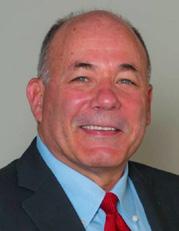
By Scott Pearson Chairman, American Truck Dealers
On October 15-16, the ATD Board of Directors met in Georgia to review and discuss numerous regulatory and legislative matters still in play in D.C. that will have long-term consequences for our industry and have been extensively covered in this column previously. The bulk of our legislative efforts, for example, will rest on opposing the so-called right-to-repair bill, pushing for repeal of the federal excise tax on heavy-duty truck purchases and legislation combating catalytic converter theft, and making sure the EPA pursues a more rational approach on truck emissions. And those ever-lingering tariffs just will not go away.
We also held robust conversations on tools to support our membership, strengthen our relations with our OEMs, and grow ATD Academy and 20 Groups, as well as improve outreach to our NextGen dealers at our dealerships, with a rebranding of that program. We also received an update on the upcoming 2026 Show in Las Vegas in February.
Speaking of which, registration and housing are still open for ATD Show 2026. Register today to connect with fellow truck dealers and managers, OEM representatives, and industry leaders for three dynamic days of education, networking, and business solutions designed to move your dealership forward. And do not forget to bring your crew! Together, we are driving success. With a high-octane NADA welcome reception at F1 Grand Prix Plaza, one of Las Vegas’ hottest new venues, you will want to race to register! Visit atdshow.org to secure your spot and book your hotel. See you at the Wynn Las Vegas in February!
On October 17, President Trump announced a 25% tariff on imports of Class 3 to Class 8 medium- and heavy-duty trucks and truck parts under Section 232 of the Trade Expansion Act of 1962. The new tariff will become effective on November 1.
The tariff on truck parts will apply to key parts, including engines, transmissions, tires, and chassis.
• For trucks that do not qualify for preferential tariff treatment under the United States-Mexico-Canada Agreement (USMCA), the tariff will apply to the full value of the vehicle.
• For trucks that do qualify for preferential tariff treatment under the USMCA, the tariff will only apply to the value of the non-U.S. content in the vehicle.
• USMCA-compliant truck parts will not be subject to the imposed tariffs until the Secretary of Commerce, in consultation with U.S. Customs and Border Protection, establishes a process to apply tariffs to the non-U.S. content of the parts.
The announcement allows manufacturers to offset a portion of tariffs for medium- and heavy-duty truck parts equal to 3.75% of the aggregate value of all trucks assembled in the United States from 2025 through 2030.
To harmonize the rebate credit process of the truck industry with the automobile industry, the president has granted an extension on the program for automobile manufacturers through 2030. The rebate credit process was initially scheduled to end on April 30, 2027. Automakers will be able to offset a portion of tariffs on automobile parts equal to 3.75% of the MSRP of automobiles they assemble in the United States. The administration will also create a similar rebate program for medium- and heavy-duty truck engine manufacturers based on the value of medium- and heavy-duty truck engines assembled in the United States.
Products subject to these new tariffs will not be subject to additional or existing sectoral tariffs on steel, aluminum, copper, automobiles and automobile parts, and lumber. They also will not be subject to reciprocal tariffs or the tariffs imposed on Canada, Mexico, Brazil, or India.
In April, the U.S. Department of Commerce initiated an investigation into “The Effect of Imports of Medium-Duty Trucks, Heavy-Duty Trucks, and Medium- and Heavy-Duty Truck Parts on the National Security” under Section 232. The president’s announcement follows the completion of this Section 232 investigation, which found that imports of medium- and heavy-duty trucks, truck parts, and buses threaten to impair the national security of the United States.
ATD submitted a comment opposing the imposition of additional tariffs on truck manufacturers and the impact that higher truck costs will have on the industry. ATD’s comment explained that the trucking industry in recent months has faced (i) new tariffs that increased costs, (ii) decreased sales, (iii) the loss of manufacturing jobs, and (iv) a clouded economic outlook.
The announcement extends a key benefit that allows automakers to reduce what they pay in tariffs
on imported auto parts that are used to build vehicles assembled in the United States. Domestic automakers have raised concerns that recent trade deals with countries, such as Japan and the United Kingdom, gave foreign automakers a cost advantage worth thousands of dollars per vehicle.
The new tariff will apply to imported trucks and truck parts beginning on November 1. NADA and ATD will keep its members up to date on significant developments impacting the industry, especially any additional guidance from the administration. NADA and ATD will continue its advocacy efforts with the administration emphasizing the effect tariffs have on truck costs, impact to truck sales, and dealership viability.
By Patrick Manzi, NADA Chief Economist
Commercial truck sales in September 2025 were down across the board. Both medium- and heavy-duty truck sales posted year-overyear declines in September, with medium-duty truck sales down 7.6% and heavy-duty truck sales down 25.6%. Year-to-date sales were down as well. Comparing the first nine months of this year to the same period in 2024, medium-duty truck sales were down 10.7% and heavy-duty truck sales were down 9.2%. The total commercial truck market posted a 10% decline year-to-date through the end of September 2025.
According to ACT Research, preliminary Class 8 truck orders in September totaled 20,800 units, a decline of 44% year-over-year. The overall September order total, while still low, was up 57.6% from 13,200 units in August. Orders of Class 5-7 trucks also fell in September. ACT Research estimates that Class 5-7 truck orders fell to 15,500 units in September, a decline of 22% year-over-year. Macroeconomic uncertainty, tariffs, and EPA’s pending MY27 emissions regulations are a few of the factors keeping truck buyers on the sidelines.
We await clarity following the president’s announcement of 25% tariffs on imported commercial trucks. According to the Motor and Equipment Manufacturers Association, roughly 35% of mediumand heavy-duty trucks sold in the U.S. are imported. These new tariffs will be another impediment to truck sales on top of the threeyear freight recession and tariffs that already were implemented on a variety of goods hauled by trucks. There is some hope that there will be at least some relief from tariffs as the Supreme Court considers the legality of tariffs implemented under the International Emergency Economic Powers Act and reciprocal tariffs. But this ruling would not affect the proposed 25% tariff on imported trucks.
Additionally, EPA is expected to provide clarity on its upcoming MY27 greenhouse gas emissions regulations. If the regulations remain in place, there may be a late pre-buy before the rollout of MY27 trucks as buyers seek to avoid an estimated price increase of up to $20,000 for new emissions-compliant trucks.
As we have outlined here, there are several pending issues in the coming months that could impact our overall truck sales in the

final quarter of 2025 and beyond. Our outlook for total commercial truck sales in 2025 is 450,000 units.
At its October Board meeting, ATD unveiled the rebranding of the NextGen program as “ATD Emerging Leaders”. The initiative will be led by ATD Emerging Leaders Chair, Chris O’Donnell of Valley Truck Centers, in Parma, Ohio.
What Is ATD Emerging Leaders? ATD Emerging Leaders is a membership group and professional development network within ATD dedicated to developing and advancing the next generation of truck dealership leaders.
Who Is Eligible? ATD Emerging Leaders is open to any member truck dealership employee, regardless of age or position, who aspires to be a leader in their truck dealership.
Vision Statement: Provide professional development and opportunities for truck dealership leaders of the future by fostering peer relationships, education, social networking and advocacy, thus building a stronger industry.
Benefits of Becoming a Member:
• Peer relationships and sharing with dealers in and out of your brand both medium and heavy-duty.
• Engaging in advocacy efforts to advance truck dealer legislative and regulatory priorities.
• Access to industry news and updates.
• ATD Emerging Leaders networking events.
• Educational events and seminars.
• Free Webinars.
How to Join: Go to www.nada.org/atd.
Questions? Contact Chris O’Donnell at codonnell@valley1. com or Kim Carey, ATD Manager, at kcarey@nada.org.
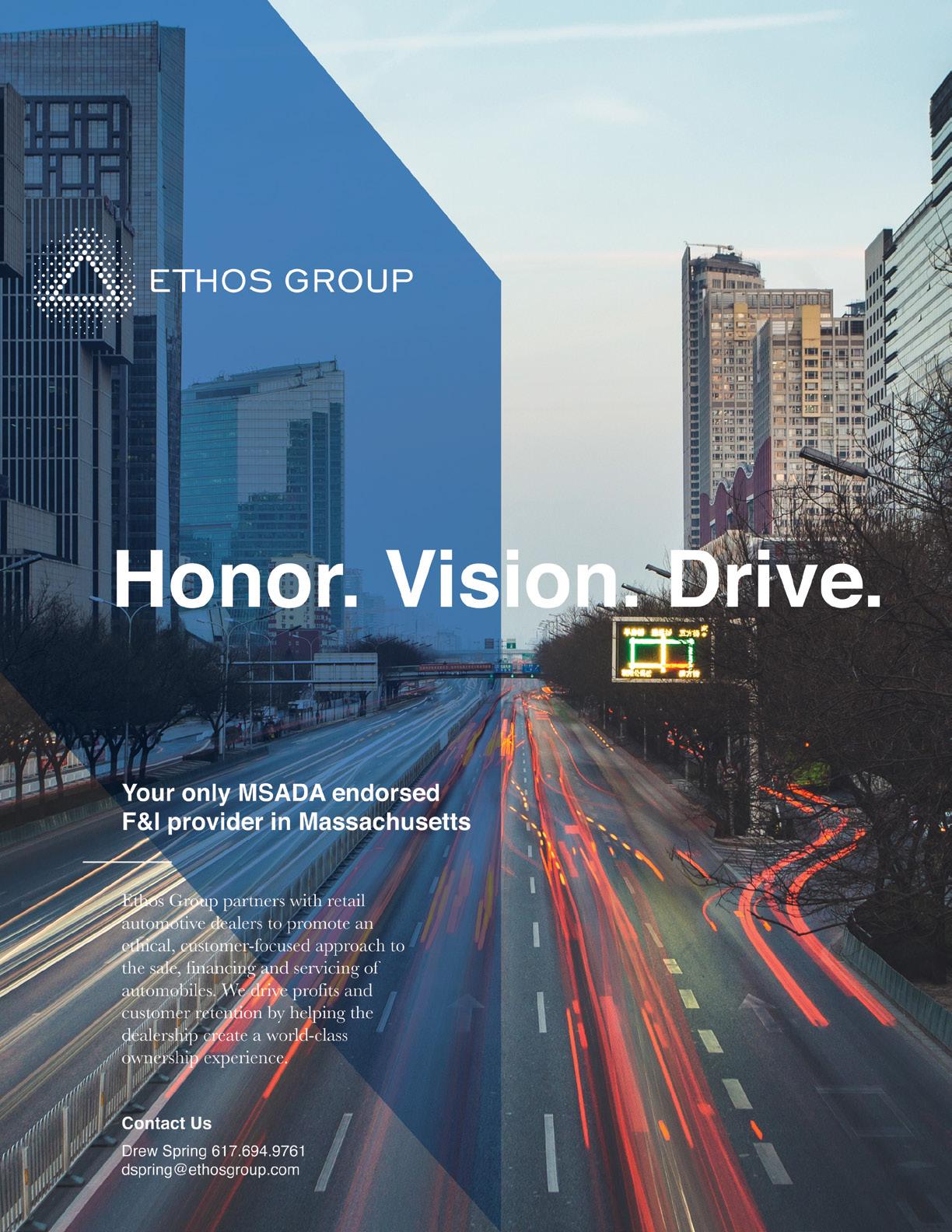

Scott Dube, Partner at McGovern
HyunDai rt. 93, rePreSentS naDa’S MaSSacHuSettS MeMberS on tHe naDa boarD of DirectorS
He can be reacHeD at SDube@ McGovernauto coM
First, I want to thank NADA President and CEO Mike Stanton for speaking at our MSADA annual meeting on October 10. Mike discussed the on-going issues franchised dealers are facing from government and our very own franchisor manufacturers and presented the game plan NADA has been implementing to address those matters. He also covered the successes NADA notched this year, including repeal of CARB’s EV mandates for cars and trucks, favorable tax treatments for dealerships in the One Big Beautiful Bill, and judicial defeat of FTC’s regulatory overreach. Thank you to our MSADA members for a strong turnout to hear Mike’s comments.
Second, the NADA Board of Directors, at our recent meeting this month, elected Rob Cochran as its 2026 chairman. Cochran, Chairman and CEO of #1 Cochran, the largest automotive retailer in Western Pennsylvania and Eastern Ohio, will succeed Tom Castriota, owner of Castriota Chevrolet, Inc. in Hudson, Florida. The board also elected Sandy Fitzgerald Angello, Vice President and Dealer Operator of Pohanka Automotive Group in Salisbury, Maryland, as NADA vice chairman for 2026 and Joe Massarelli, president of Liberty Auto City in Libertyville, Illinois, as secretary, and re-elected Kirt Frye, president of Sunnyside Automotive Group in Middleburg Heights, Ohio, as treasurer. Congratulations to all, and I look forward to working with them next year on the challenges facing our franchised dealers.
Finally, our NADA Show 2026 in Las Vegas is coming up on February 3-6. It is not too late to register. The exhibition floor space is sold out, and hotel rooms are going fast. You can find all the necessary registration information below and on www. nada.org
As we enter October, I am grateful and honored to serve as your 2025 Chairman of NADA. What a few months we’ve had! Over 450 dealers and ATAEs came to Washington, D.C. to meet with lawmakers to advocate for dealer legislative priorities; NADA moved to intervene in CARB’s lawsuit against the EPA;
and NADA continues to fight threats to the franchise system.
Last month, I had the pleasure of speaking with franchised dealers and ATAEs who met in the nation’s capital for the 50th annual Washington Conference. It was an extraordinary milestone and event. In over 200 meetings, attendees encouraged lawmakers to cosponsor the “PART Act,” which would help law enforcement crack down on catalytic converter theft. They urged lawmakers to oppose so-called “Right to Repair” legislation, a bill that has little to do with repairing vehicles but everything to do with allowing more knock-off imported auto parts into the U.S. And they thanked those lawmakers who voted for the “One Big Beautiful Bill Act,” which contained tax provisions that will significantly help small business dealers. ATAEs and dealers also shared their thoughts on tariffs and how they will impact their businesses.
At the Washington Conference breakfast, dealers heard directly from House Energy and Commerce chairman Brett Guthrie (R-Kentucky) and Senators Bernie Moreno (R-Ohio) and Elissa Slotkin (D-Michigan). These senators played key roles in the successful passage of the CRAs that overturned California’s ban on gas and hybrid vehicles.
Many of you will recall that California sued hours after President Trump signed the CRAs into law. The lawsuit seeks to reinstate California’s ban on gas, hybrid and diesel trucks, as well as its Omnibus Low NOx standards, which were unachievable. NADA and ATD have moved to intervene in that lawsuit and are defending the CRAs.
Meanwhile, the franchise system continues to face considerable challenges, prompting NADA to work closely with ATAEs to safeguard the interests of dealers and consumers and protect state franchise laws.
The California New Car Dealers Association took decisive action this summer by initiating two lawsuits—one against Scout/VW and another against Honda/Sony—on the grounds of violating the state’s franchise laws. These actions follow extensive outreach to the respective automakers, as well as a series of public communications regarding the benefits of the franchise system.
Have no doubt, we remain steadfast. NADA is committed to advocating for the franchise system as the most effective way to deliver exceptional customer experiences and meet today’s marketplace demands.
This has coincided with the unfair competitive challenge posed by Chinese OEMs as they seek to enter the U.S. market. In previous communications, I highlighted the increasing market share of Chinese automobiles in close, allied countries, as well as in emerging markets. My recent visit to Brazil further confirmed this trend.
General Motors currently holds a 10% market share in the
passenger vehicle segment in Brazil. Other American automakers have not fared better; Ford has a single-digit market share there. This trend raises significant concerns, especially as Chinese automakers – with significant and unfair support from the Chinese government – are becoming increasingly competitive. Unfortunately, this external challenge is likely to persist and will continue to pose serious competitive threats to manufacturers and dealers alike.
In closing, let us not forget that the Las Vegas NADA Show is around the corner, February 3-6, and our show chair, Trace Beck, and NADA Senior Vice President Melissa Wolpert will kick it all off with the welcome reception at the iconic home of the Formula 1 Las Vegas Grand Prix. And it only gets better from there!
This promises to be an outstanding show. Be sure to plan accordingly and register today to avoid missing out! We look forward to seeing you in Las Vegas!
Semper Fi,
Tom Castriota
NADA Board Elects Pennsylvania Dealer Rob Cochran as 2026 Chairman, Maryland Dealer Sandy Fitzgerald Angello as Vice Chair
At its October 14 meeting, the National Automobile Dealers Association Board of Directors elected Rob Cochran as its 2026 chairman. Cochran, Chairman and CEO of #1 Cochran, the largest automotive retailer in Western Pennsylvania and Eastern Ohio, will succeed Tom Castriota, owner of Castriota Chevrolet, Inc. in Hudson, Florida.
“I am incredibly humbled at the opportunity to serve as the next Chairman of NADA,” stated Cochran. “At a time when the automotive industry is undergoing rapid transformation— from global trade uncertainty to challenges to the franchise system—it’s essential that America’s franchised dealers continue to work with all stakeholders on behalf of the dealer body. I look forward to working with the NADA board, along with state and metro dealer associations, to ensure the needs of Main Street dealers and their customers remain at the forefront of policy, education, and advocacy.”
Rob Cochran began his automotive career in 1987 after graduating from Carnegie Mellon University. A second-generation leader, he has guided the family-owned business for more than three decades, expanding it into a dynamic enterprise defined by innovation, diversification, and an unwavering commitment to its customers and communities. Today, the company operates 35 dealerships representing 20 brands, 12 collision centers, and a wholesale parts distribution center. A member of the NADA Board of Directors since 2020, Cochran has also served as chairman of the Pennsylvania Automotive Association and president of the Greater Pittsburgh Automobile Dealers Association. Additionally, he currently serves as a Pittsburgh Branch Director of the Federal Reserve Bank of Cleveland.
Sandy Fitzgerald Angello, Vice President and Dealer Operator of Pohanka Automotive Group in Salisbury, Maryland, was elected as NADA vice chairman for 2026. With over 40 years of experience in the automotive industry, Angello has strategically guided the significant growth of Pohanka Automotive Group across several locations. Angello has represented Maryland’s franchised new-car dealers on the NADA Board of Directors since 2021.
“I am honored to serve as the Vice Chairman on the NADA Board of Directors for the upcoming term,” said Angello. “This position allows me to amplify the voice of dealers and continue my decades-long commitment to improving the automotive industry. I look forward to working with my fellow board members, NADA staff, and fellow industry leaders to support franchised dealers and the customers we serve.”
Joe Massarelli, president of Liberty Auto City in Libertyville, Illinois, was elected as secretary. Kirt Frye, president of Sunnyside Automotive Group in Middleburg Heights, Ohio, was re-elected as treasurer. The new terms will begin at the NADA Show 2026 in Las Vegas in February.
Hotels Are Going Fast — Register Today for NADA Show 2026, Feb. 3-6
By Maryann Malesardi NADA Senior Manager, Event Marketing
NADA Show 2026 kicks off Tuesday, February 3, in Las Vegas, and with 20,000-plus attendees expected, discounted hotel rooms are filling fast. Don’t miss your first choice.
NADA partners with top hotels to offer you the best rates. Properties close to the Las Vegas Convention Center offer unbeatable convenience, but the demand is high for these and other legendary properties.
Join thousands of dealers, managers, OEM reps, and industry partners for the Auto Industry Event of the Year. From game-changing education sessions to an expansive Expo packed with the latest innovations, plus franchise meetings and more, there is something for everyone. NADA Show delivers the tools, insights and connections you need to drive your dealership’s success in 2026 and beyond.
NADA Show will kick it all off Tuesday night with the welcome reception at the iconic home of the Formula 1 Las Vegas Grand Prix.
The Show also announced the Main Stage speakers, who are world-class keynoters and champions of resilience, leadership, and peak performance. They are bringing bold insights, big energy, and a fresh perspective to Las Vegas. Here’s who’s taking center stage: Magician and former NFL player Jon Dorenbos; Molly Fletcher, hailed as the “female Jerry Maguire” by CNN; and NBA superstar Magic Johnson.
Finally, Main Stage will also feature exclusive updates from NADA leadership, compelling insights from industry thought leaders, and the presentation of the 2026 TIME Dealer of the Year.
Do not wait. Register online today at www.nada.org/nada-show-attend.
The federal government, as of this writing, continues to be shut down, which began at 12:01 a.m. on October 1. As the stalemate goes unresolved, NADA continues to confront various matters:
The NADA-supported PART Act continues to gain steam in the House. Since the House version of the PART Act (H.R. 5221/S. 2238) was introduced right before Washington Conference, it has gained 27 cosponsors, for a total of 35 cosponsors (including Massachusetts Reps. Lori Trahan, D-Westford, and Jake Auchincloss, D-Newton). The bipartisan legislation would require new vehicles to have traceable numbers on catalytic converters and assist law enforcement in fighting catalytic converter theft. While the government remains closed, with no resolution in sight, Members of Congress can continue to add their names as cosponsors. NADA thanks ATAEs and Directors for building support for this needed legislation.
So-Called “Right to
A recent ad placed in Politico by the Auto Care Association, proponents of H.R. 1566/S. 1379 the so-called “right to repair” legislation, painted a gloomy picture of what the country will face should the REPAIR Act not be enacted. The promotion, titled, “10 Reasons Why the REPAIR Act is Critical,” claims many aspects of the American economy will suffer disastrous consequences unless this legislation is passed by Congress and signed into law. The piece argues that this “critical” bill is essential to protect not only consumers, jobs, and the supply chain, but also first responders and to “fight climate change.” It asserts that “Without right to repair, grocery stores could face basic food shortages, hospitals could run out of supplies and service stations could run out of fuel.” Thankfully our nation has somehow managed to avoid this dystopian future without this legislation. NADA continues to advocate to members of Congress on why the REPAIR Act is unnecessary.
after Congress passed bipartisan legislation in June to remove their authority to impose standards that would have banned gas powered cars. CARB said the move is necessary to clarify that regulators still have the authority to certify vehicles sold in the state, “despite the ongoing uncertainty created by the federal government’s actions.” CARB also argues that it still has the authority to impose these older standards under the Obama administration’s waiver. However, the EPA has stated that CARB has no authority to adopt or enforce their own standards after passage of the CRAs and that any such standards would need to be approved by the EPA, which will not be happening. CARB has scheduled a vote on reverting to its older standards at its November 20 meeting.
Thankfully our nation has somehow managed to avoid this dystopian future without this legislation.
On September 5, NADA, ATD, and the Alliance for Automotive Innovation (Alliance) filed a motion to intervene in California’s lawsuit against the EPA. California challenged the federal government’s invalidation, under the Congressional Review Act (CRA), of CARB’s Advanced Clean Cars II, Advanced Clean Trucks, and Omnibus Low NOx rules. NADA and ATD have long supported technology-inclusive national standards that improve motor vehicle emissions without hurting vehicle affordability or restricting consumer choice. In joining this suit, NADA and ATD protect dealers’ interests by opposing California’s efforts to revive its standards that Congress properly recognized are unachievable, harmful to industry competitiveness, and out of sync with customer demand. EPA is vigorously defending the CRA measures that preempted California’s rules. On September 19, EPA filed a motion to dismiss California’s suit, asserting the CRA disapprovals are a valid exercise of Congressional authority. On October 23, the court will consider whether NADA, ATD, and the Alliance can intervene in the suit in support of EPA. In mid-October, House Republican leadership submitted a brief in support of the Trump Administration against California’s lawsuit.
Sen. Richard Blumenthal (D-Connecticut) reintroduced legislation that would cripple the used-vehicle market by halting a dealer’s sale of used vehicles under any open recall (S.2956). This bill would devalue many trade-ins, making it more expensive for buyers to purchase a newer, safer vehicle. NADA is strongly opposed to this legislation. NADA expects that Sen. Blumenthal will attempt to add S.2956 to next year’s highway bill reauthorization as he has unsuccessfully tried before.
New CARB Attempt on Emissions
The California Air Resources Board (CARB) is attempting to revert to their previous emissions rules for cars and trucks,
NADA and ATD currently are advocating for reasonable vehicle emissions and fuel economy standards in place of the Biden-era rules. On September 22, NADA and ATD submitted comments to EPA on the agency’s greenhouse gas (GHG) emissions rulemaking, warning that the GHG rules of the prior administration were premised on overly aggressive assumptions of EV market penetration that have not been realized, given lagging charging infrastructure, higher EV prices, and limited consumer demand. NADA and ATD support rolling back those rules and replacing them with technology-neutral standards that improve emissions and accommodate a broader range of new vehicle options to satisfy customers.


